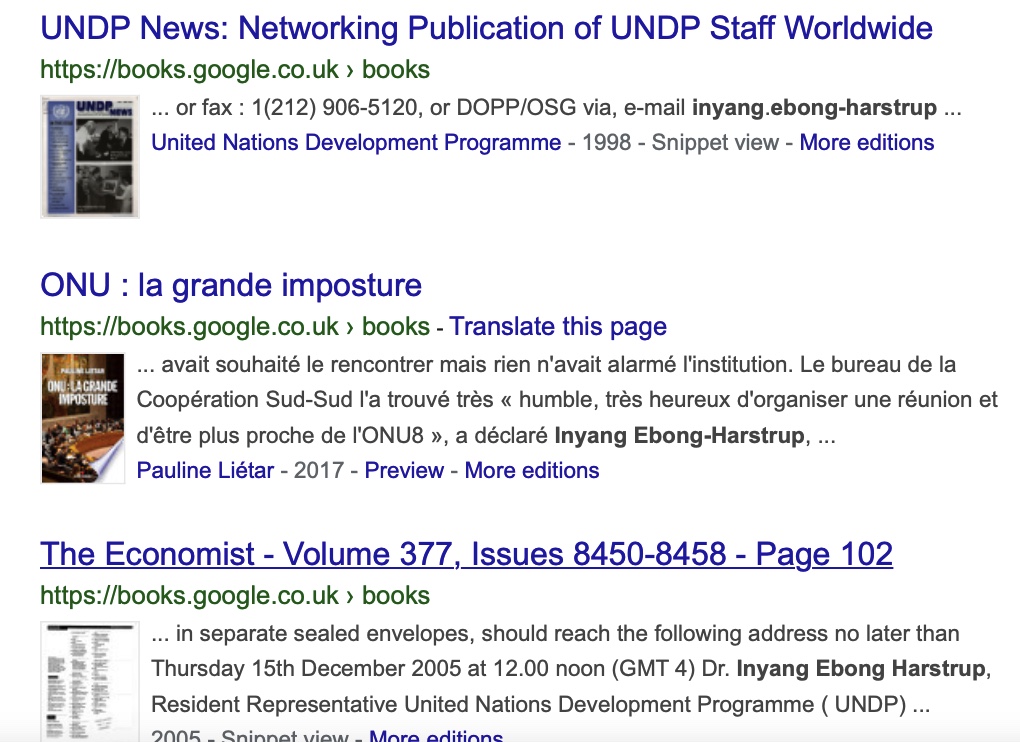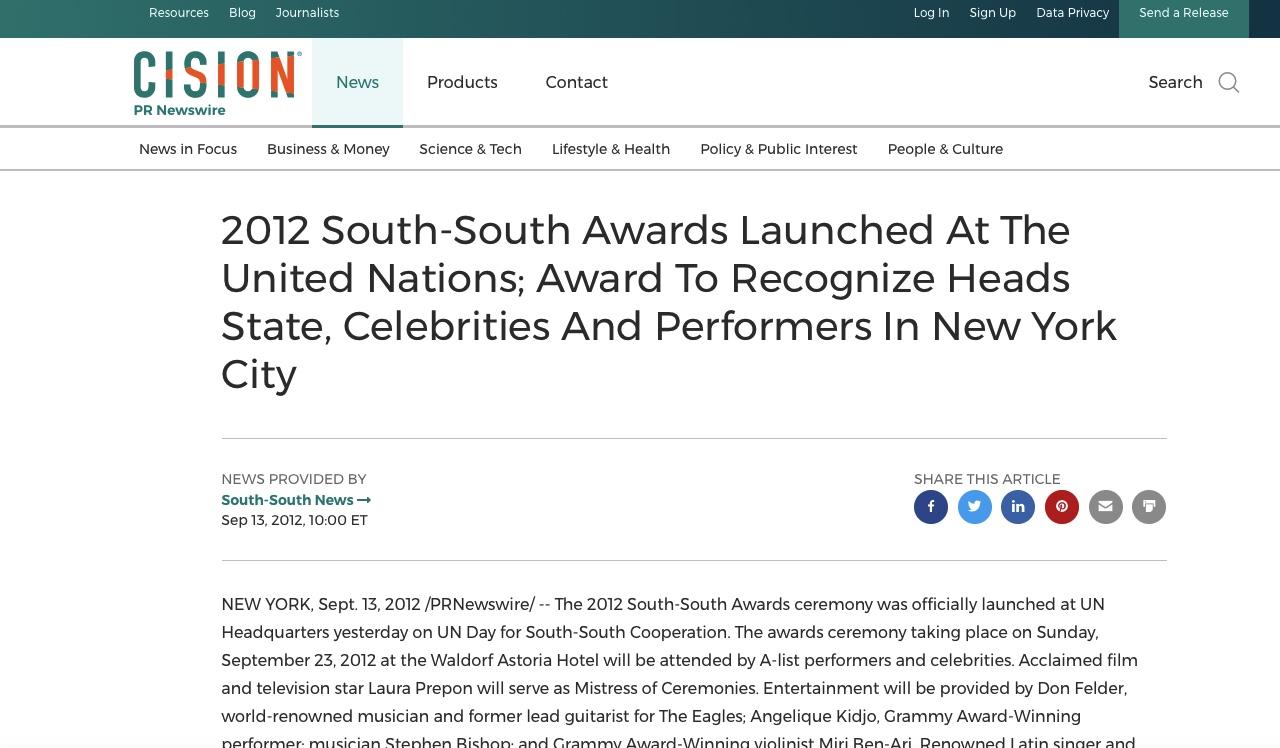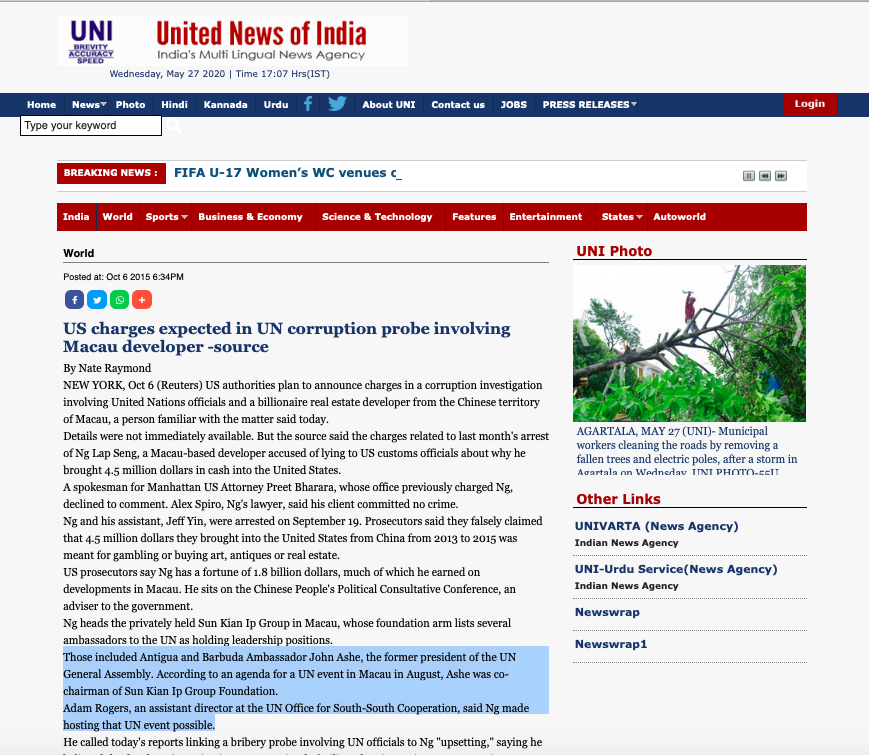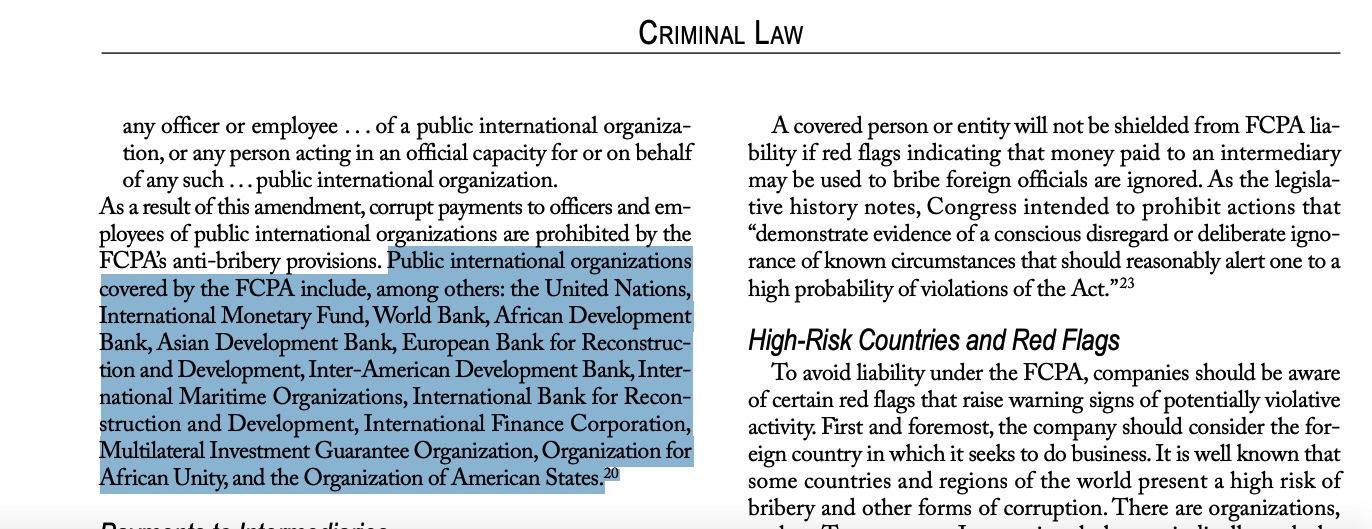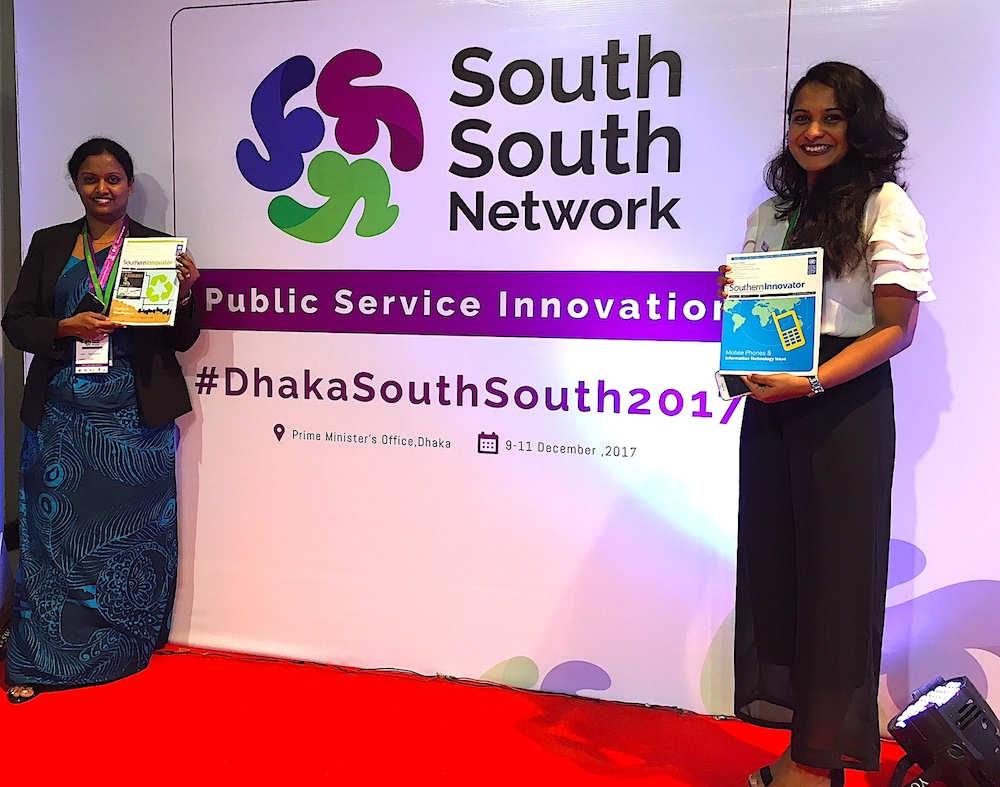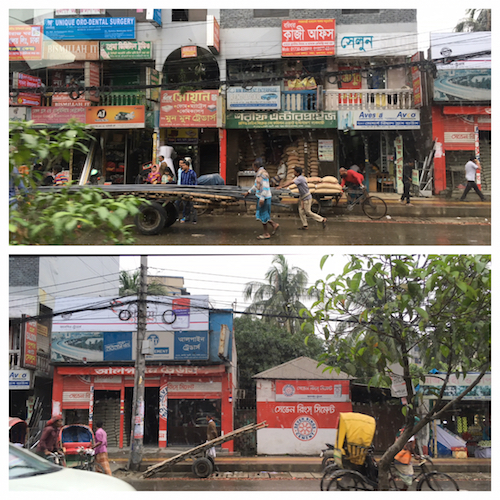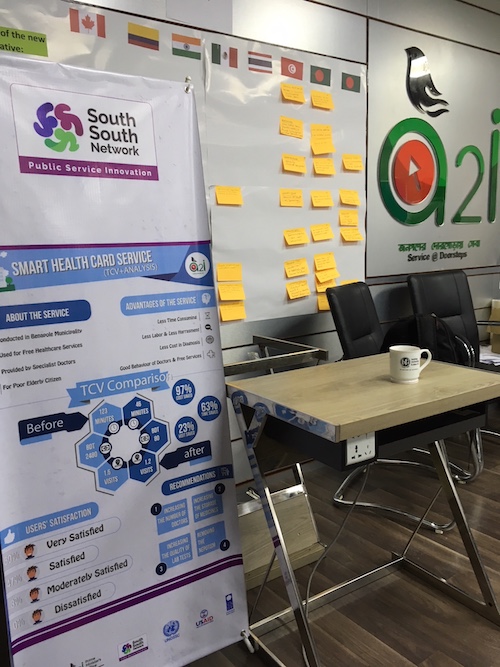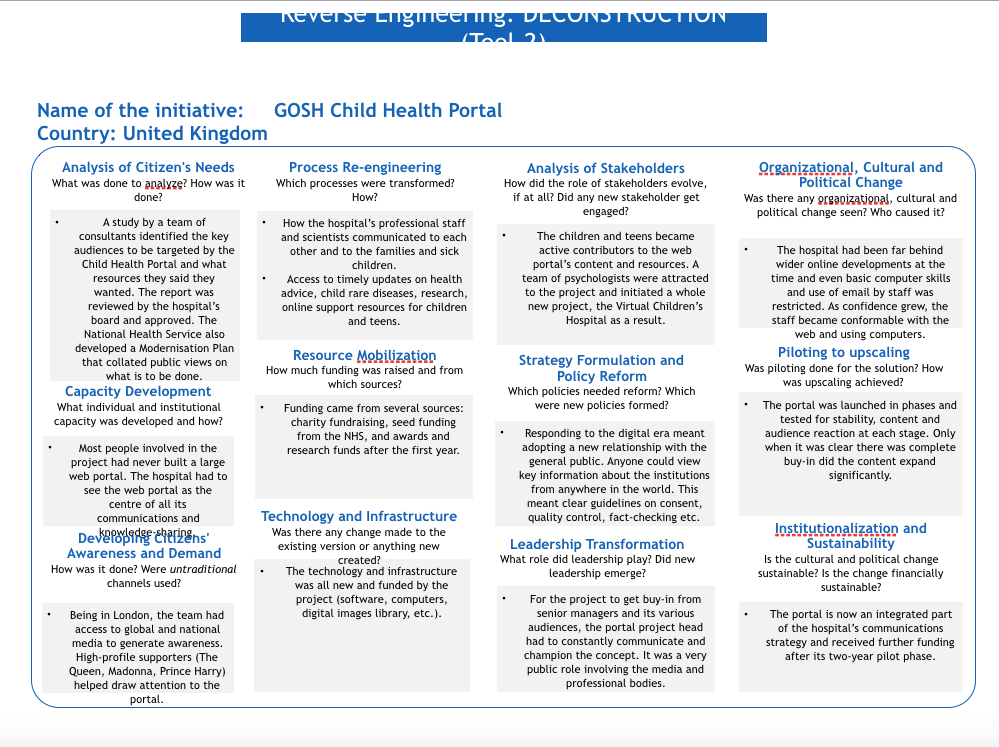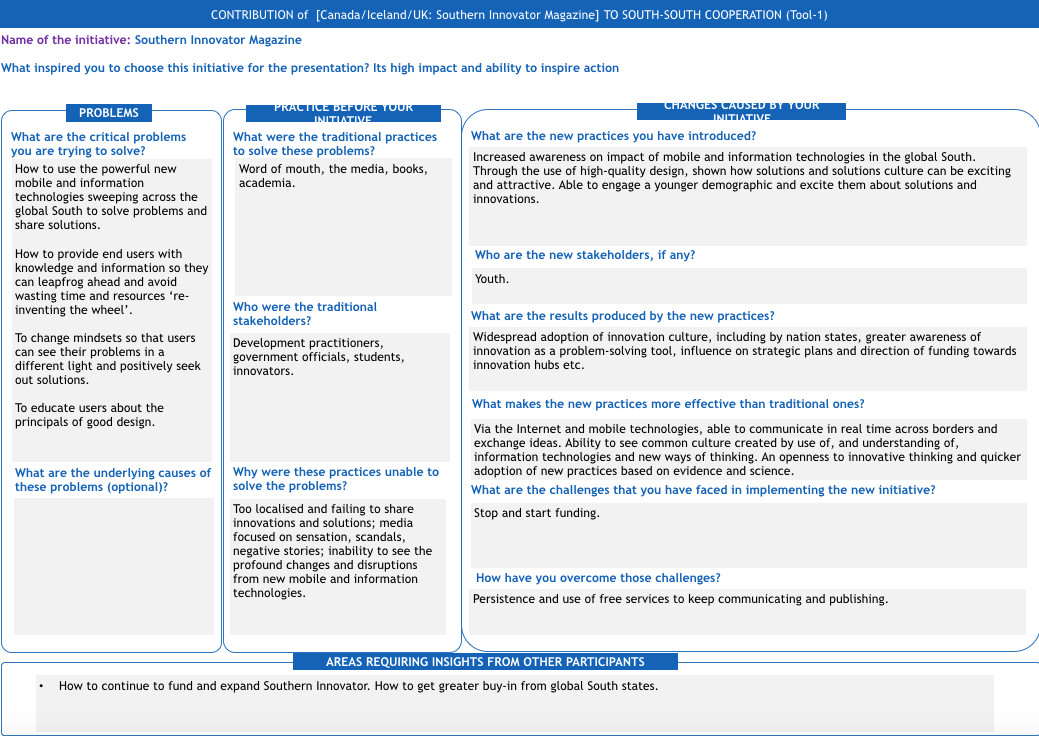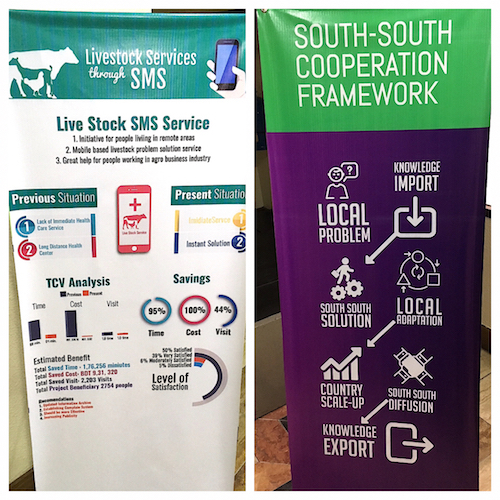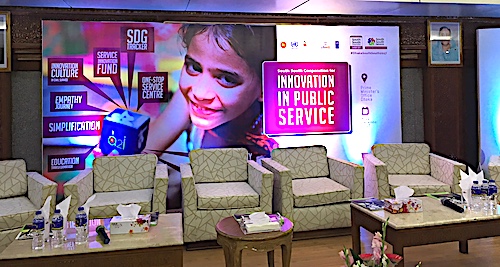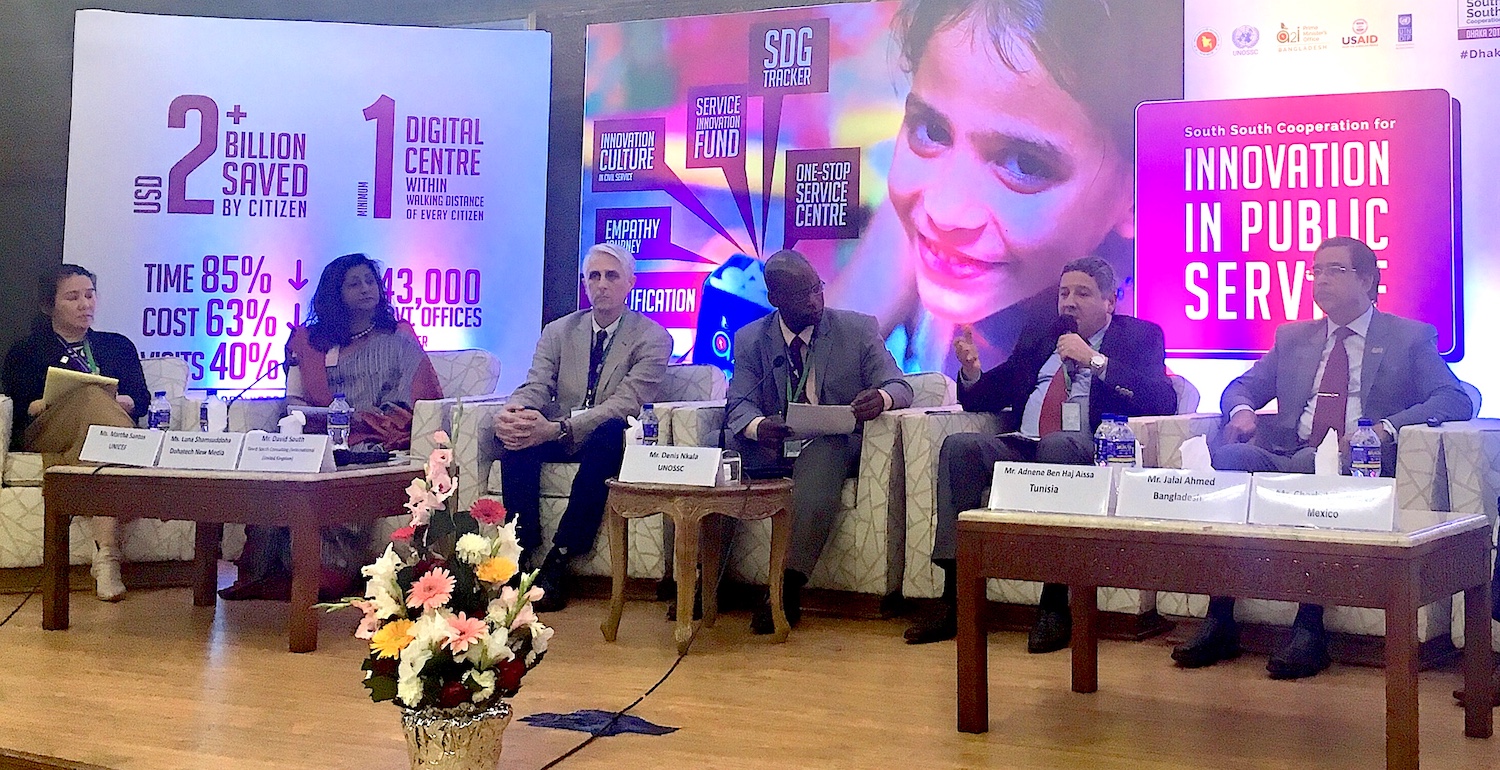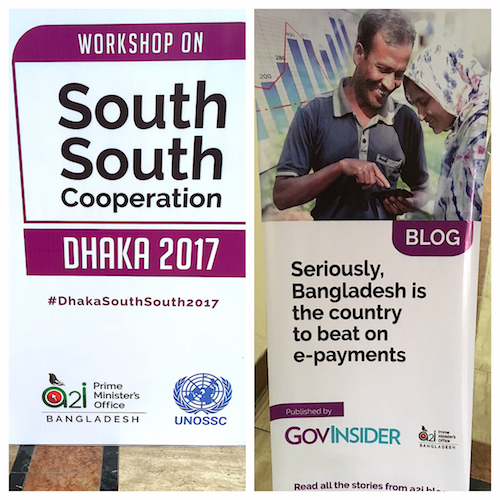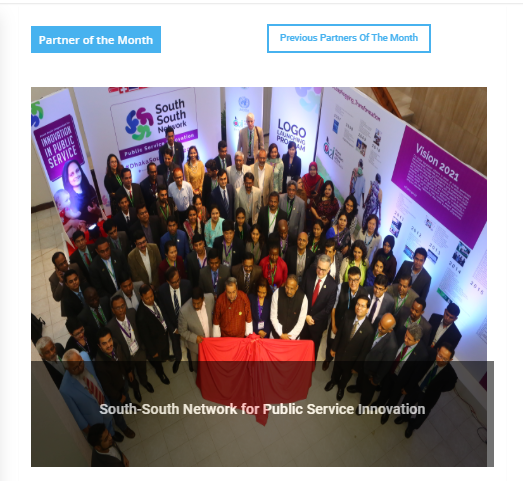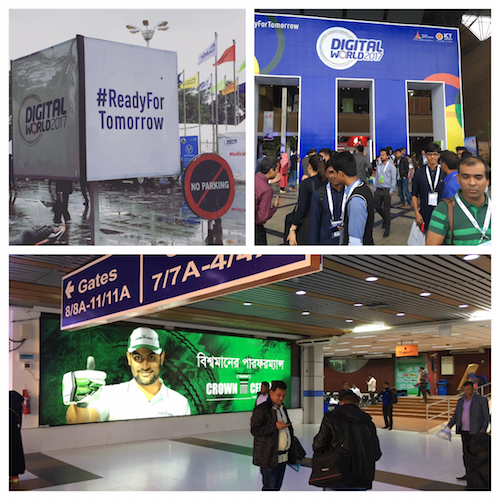The Strange Saga of "South-South News" | May 2018
 Sunday, March 4, 2018 at 3:15PM
Sunday, March 4, 2018 at 3:15PM

Bribery: Business as Usual?
"We will be asking: is bribery business as usual at the UN?", US Attorney Preet Bharara, October 2015
"If proven, today's charges will confirm that the cancer of corruption that plagues too many local and state governments infects the United Nations as well.", US Attorney Preet Bharara, October 2015
"Corruption at any level of government undermines the rule of law and cannot be tolerated. But corruption is especially corrosive when it occurs at an international body like the United Nations. By paying bribes to two U.N. ambassadors to advance his interest in obtaining formal support for the Macau conference center project, Ng Lap Seng tried to manipulate the functions of the United Nations. The sentence handed down today demonstrates that those who engage in corruption will pay a heavy price and serves as a reminder that no one stands above the law.", Acting Assistant General John P. Cronan, May 2018
"It is important to send a message, to the people at the UN itself and to other institutions in this country, that perverting the decision-making or attempting to pervert the decision-making through bribes will not be tolerated.", US District Judge Vernon Broderick, May 2018
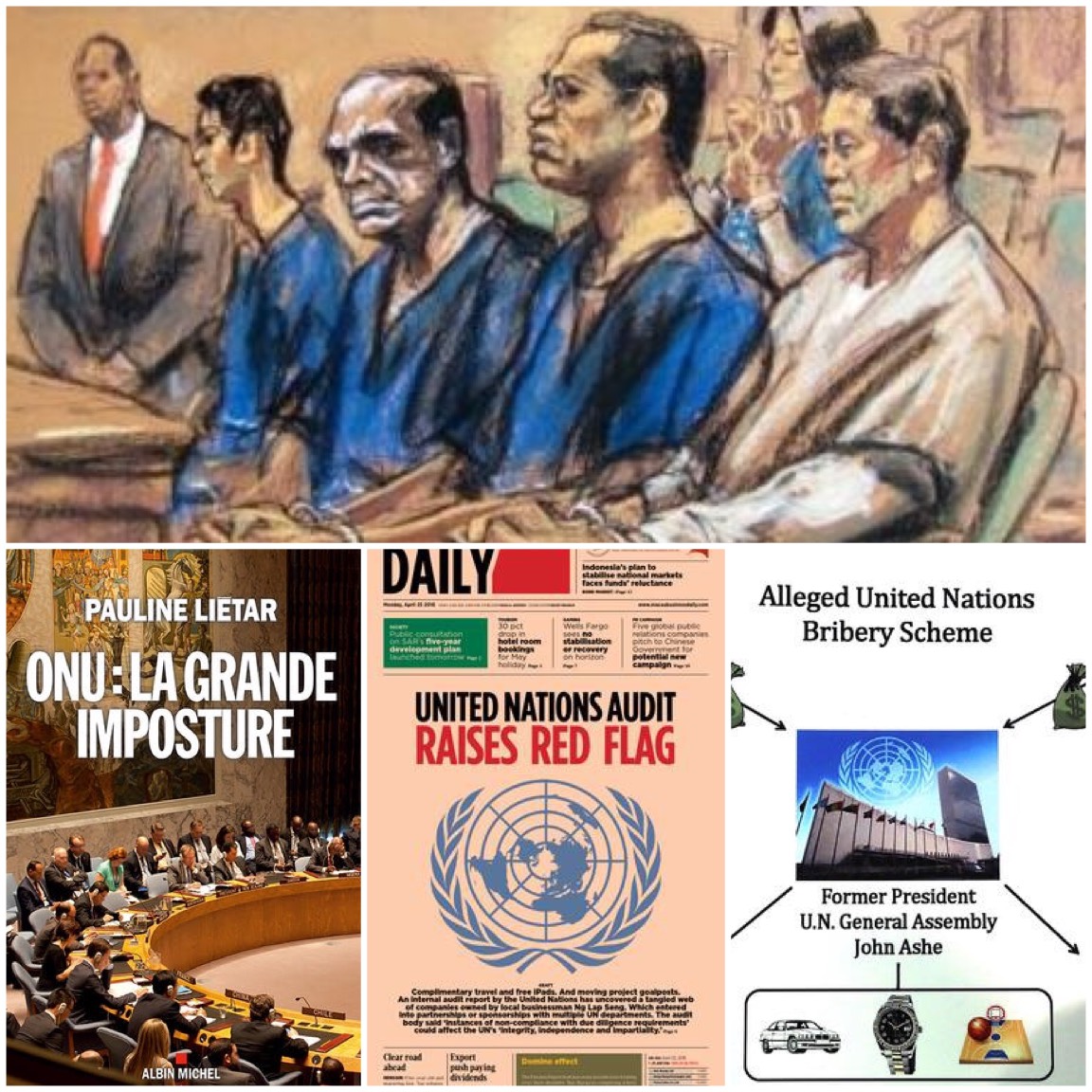

It is a story that has it all: the gambling sin-bin of Macau, human and sex trafficking, bribery, corruption, money laundering, spies, and, if they are to be believed, naive UN officials hiding behind their laissez-passer passports who knew nothing about all of this but were happy to take the money for a five-star conference and a trip to China (and a free iPad). How the UN ended up in this quagmire leaves many puzzled and perplexed. Then there is a so-called "21st century" media service that really is a "conduit" for bribery and money laundering (and possibly fake news), and who to this day is still reporting from the United Nations.
May 2018 saw the ending of one chapter in the ongoing corruption saga surrounding the executives of South-South News and their alleged bribery and money laundering conduit targeting the United Nations (UN). On 11 May 2018 Ng Lap Seng was sentenced to 4 years in prison for being the ring leader of an elaborate, multi-year, multinational scheme to bribe UN officials and launder money into the United States.
On 28 February 2018 Jeff Yin received a seven-month prison sentence related to the corruption scandal that first erupted in September 2015, with the arrests in New York (home of the UN's global headquarters) of his boss, Macau casino owner and businessman Ng Lap Seng and assistant, Yin, by the FBI (Federal Bureau of Investigation). Foreign Policy called the case one of "The Worst Corruption Scandals of 2015". Read the US Justice Department Docket here: https://www.justice.gov/criminal-fraud/fcpa/cases/ng-lap-seng-and-jeff-c-yin.
The US Attorney for the Southern District of New York at the time, Preet Bharara, released a flowchart showing how the alleged bribery scheme targeting the United Nations worked. A series of court trials followed for the various co-conspirators, including senior executives and board members for South-South News, culminating in the 27 July 2017 conviction of the alleged ring leader of the scheme, Macau casino billionaire Ng Lap Seng, on six counts "for his role in a scheme to bribe United Nations ambassadors to obtain support to build a conference center in Macau that would host, among other events, the annual United Nations Global South-South Development Expo". He used the news service South-South News as a "conduit for bribery and money laundering" at the United Nations, according to the FBI, something admitted to by various co-conspirators in court and under oath.
 Despite being delisted by the UN Global Compact on 9 April 2015, the United Nations took money from the Sun Kian Ip Group. The United Nations Office for South-South Cooperation (UNOSSC) ran a High-Level Multi-Stakeholders Strategy Forum from 25-26 August 2015 funded by the Sun Kian Ip Group.
Despite being delisted by the UN Global Compact on 9 April 2015, the United Nations took money from the Sun Kian Ip Group. The United Nations Office for South-South Cooperation (UNOSSC) ran a High-Level Multi-Stakeholders Strategy Forum from 25-26 August 2015 funded by the Sun Kian Ip Group.
Carving Up the UN Cake in Macau
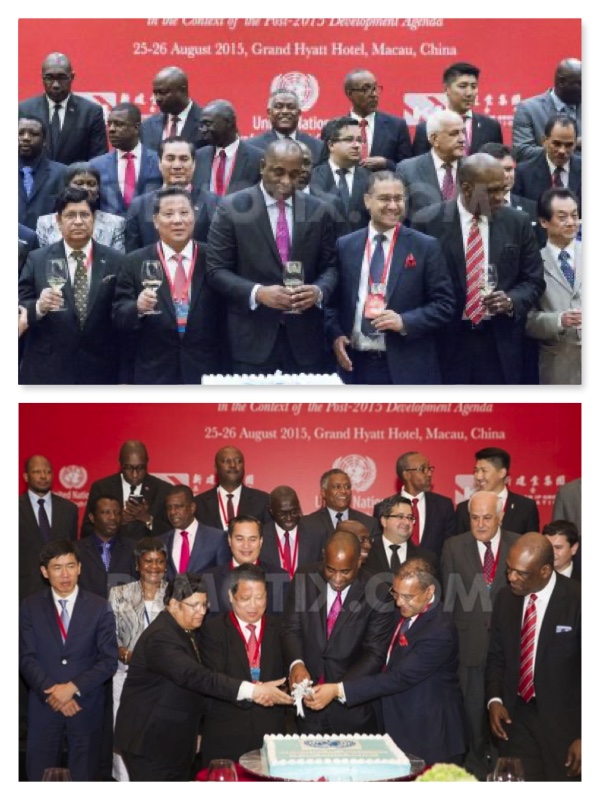 "Cheers!" From left to right in top photo: Ng Lap Seng, "kingpin of the international slave prostitution trade" and associated with the Wo On Lok triad. From right of photo: Yiping Zhou, Director of the UNOSSC, President of the UN General Assembly John William Ashe, and Ambassador Francis Lorenzo of South-South News during the Macau High-Level Strategy Forum in 2015. The bribery/money laundering/trafficking/influence operation network at the United Nations was broken up by the FBI (Federal Bureau of Investigation) with arrests in October 2015.
"Cheers!" From left to right in top photo: Ng Lap Seng, "kingpin of the international slave prostitution trade" and associated with the Wo On Lok triad. From right of photo: Yiping Zhou, Director of the UNOSSC, President of the UN General Assembly John William Ashe, and Ambassador Francis Lorenzo of South-South News during the Macau High-Level Strategy Forum in 2015. The bribery/money laundering/trafficking/influence operation network at the United Nations was broken up by the FBI (Federal Bureau of Investigation) with arrests in October 2015.
More on the Wo On Lok Triad
From The United Nations and Transnational Organized Crime by Ernesto Savona and Phil Williams (Routledge, 2012): "Triads are involved in a whole range of criminal activities, including extortion, drug trafficking, prostitution and gambling. They also have extensive overseas networks, which allow them to engage in transnational criminal activity with great ease. ... prostitution and pornography and trafficking in children is controlled predominantly by the Wo On Lok." (Page 17).
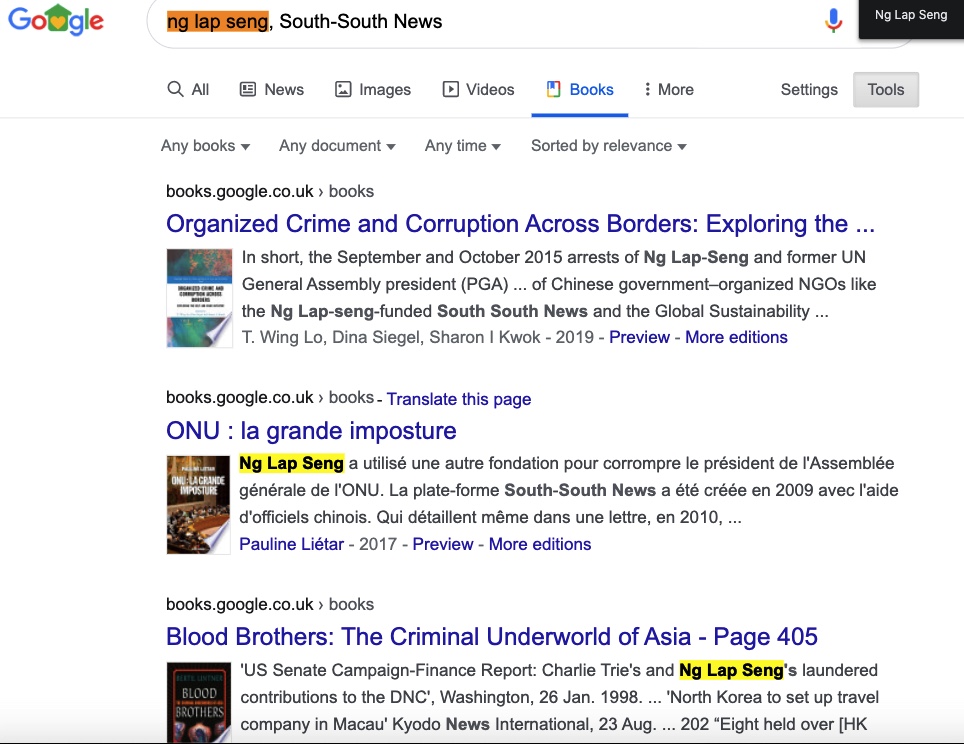 Books detailing the relationship between Ng Lap Seng and South-South News.
Books detailing the relationship between Ng Lap Seng and South-South News.
Background
The "21st century" media service South-South News (which still exists) was founded in 2010 by Ng Lap Seng and Ambassador Francis Lorenzo with US $12 million. According to the FBI, Seng did this with the objective of bribing UN officials, laundering money into the United States - bringing US $4.5 million into the US in cash over a period of two years - and lobbying for the building of a new UN facility in Macau for the annual Global South-South Development Expo (GSSD Expo) - a "Geneva of Asia". The new facility would cost US $3 billion and be built by Ng Lap Seng's construction company.
Macau has been called by a former UN official in charge of the organisation's anti-human trafficking work a world centre of modern human slave trafficking. Ng Lap Seng, in a 2010 assessment by International Risk Ltd., was found to be "characterized in the media as a 'Macau Crime Lord' and kingpin of the international slave prostitution trade".
Ng Lap Seng's Sun Kian Ip Group was barred from the UN's Global Compact, according to The Wall Street Journal, and Seng was flagged up as a person not to do business with, including by Interpol. Despite this track record and multiple warning signs, both South-South News and the United Nations took money from Ng Lap Seng. The UN has clear rules regarding due diligence for income sources and has rules against bribery, corruption and human and sex trafficking in all its forms.
One of the co-conspirators in the scheme was former UN General Assembly President John Ashe. He died due to a weightlifting accident before he had to testify in a New York court room. According to Farrukh Khan, Program Manager on Climate Finance at the UN Secretary-General's Office, Ashe played a key role in the negotiations for the Sustainable Development Goals (SDGs).
Other Co-Conspirators and Charges:
John W. Ashe, President of UN General Assembly: Filing False Income Tax Returns
Heidi Hong Park (Piao), Global Sustainability Foundation - Finance Director: Conspiracy to Commit Bribery
Shiwei (Sheri) Yan, Global Sustainability Foundation - Founder and CEO: Conspiracy to Commit Bribery
Francis Lorenzo, Deputy Permanent Respresentative to the UN for the Dominican Republic: Bribery
Sources: Foreign Policy, Stanford Law School, US Justice Department, The Wall Street Journal.
Update: As the net has widened, others have also been charged and associated with the original plot to bribe UN officials and launder money. They are:
Jeff Yin, aide to Ng Lap Seng. South China Morning Post: Ex-aide of Macau billionaire Ng Lap Seng, jailed by US in fallout from UN bribery scandal, blames 'traditional' Chinese upbringing
Ying Lin, Air China. Reuters: Ex-Air China employee wins dismissal of U.S. smuggling charge
Roger Uren, formerly of the Australian Secret Intelligence Service. The Sydney Morning Herald: Charges loom for ex-intelligence official Roger Uren after ASIO raid
Julia Vivi (Vivian) Wang, Vice President, South-South News. Law 360: Woman Who Helped Bribe Top Diplomat Cops To FCPA Counts. WKZO: Chinese-born executive pleads guilty in U.N. bribery case . Stanford Law School: Foreign Corrupt Practices Act Clearinghouse. Case Information: United States of America v. Julia Vivi Wang.
Timeline: In the Headlines

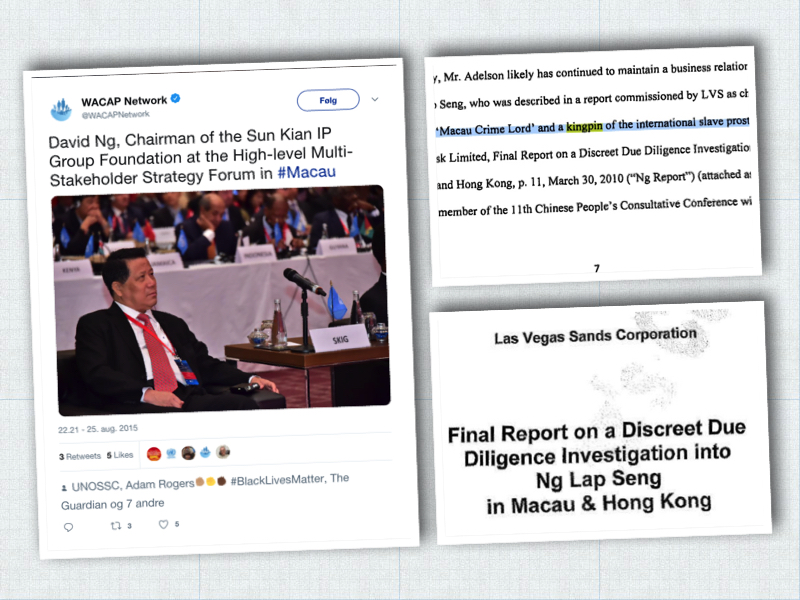 Final Report on Discreet Due Diligence Investigation into Ng Lap Seng: "Macau Crime Lord" and "kingpin of the international slave prostitution trade."
Final Report on Discreet Due Diligence Investigation into Ng Lap Seng: "Macau Crime Lord" and "kingpin of the international slave prostitution trade."
2012
September
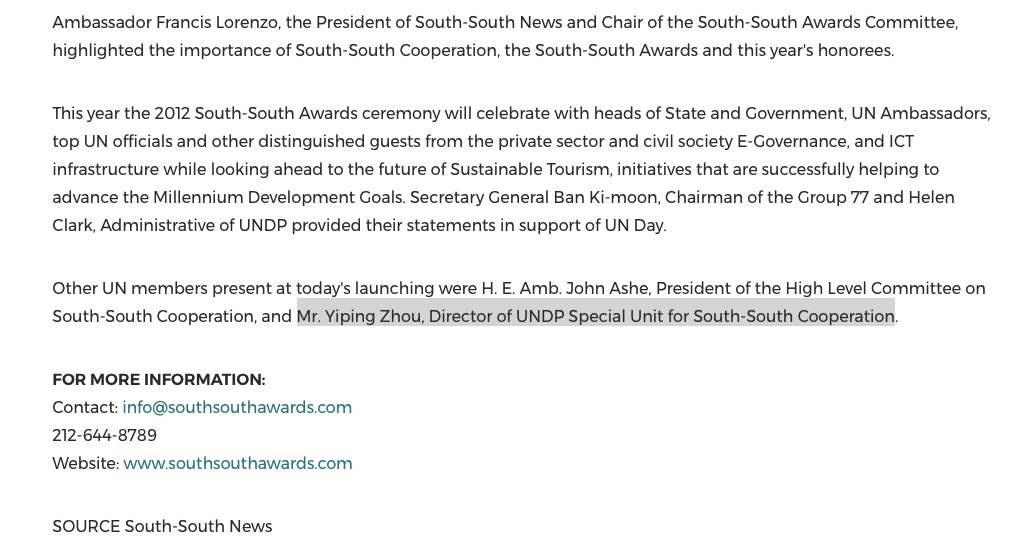 The South-South Awards were attended by Francis Lorenzo, President of South-South News, Yiping Zhou, Director of the UNDP Special Unit for South-South Cooperation, and H.E. Amb. John Ashe, President of the High Level Committee on South-South Cooperation (13 Sept. 2012).
The South-South Awards were attended by Francis Lorenzo, President of South-South News, Yiping Zhou, Director of the UNDP Special Unit for South-South Cooperation, and H.E. Amb. John Ashe, President of the High Level Committee on South-South Cooperation (13 Sept. 2012).
November
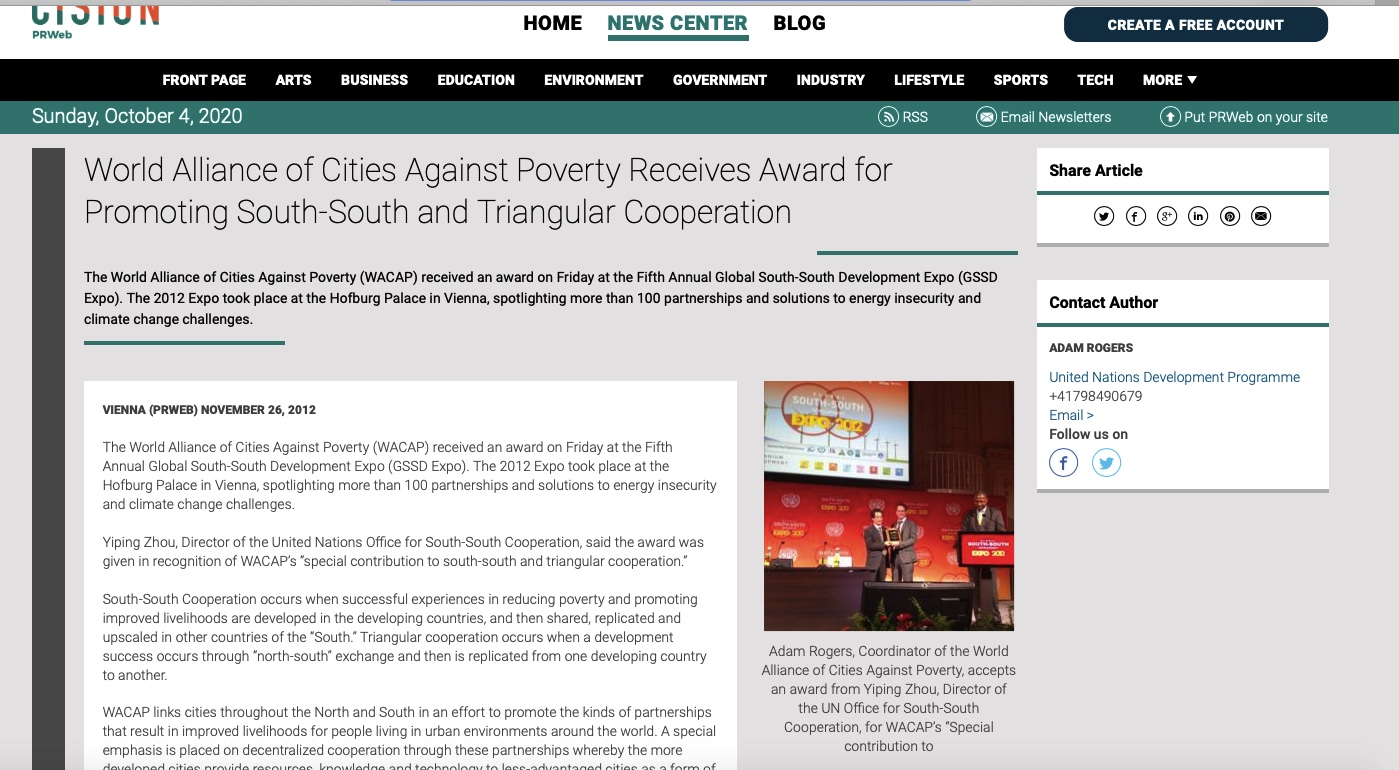 "Adam Rogers, Coordinator of the World Alliance of Cities Against Poverty, accepts an award from Yiping Zhou, Director of the UN Office for South-South Cooperation, for WACAP’s 'Special contribution'". (Vienna, November 26, 2012)
"Adam Rogers, Coordinator of the World Alliance of Cities Against Poverty, accepts an award from Yiping Zhou, Director of the UN Office for South-South Cooperation, for WACAP’s 'Special contribution'". (Vienna, November 26, 2012)
2013
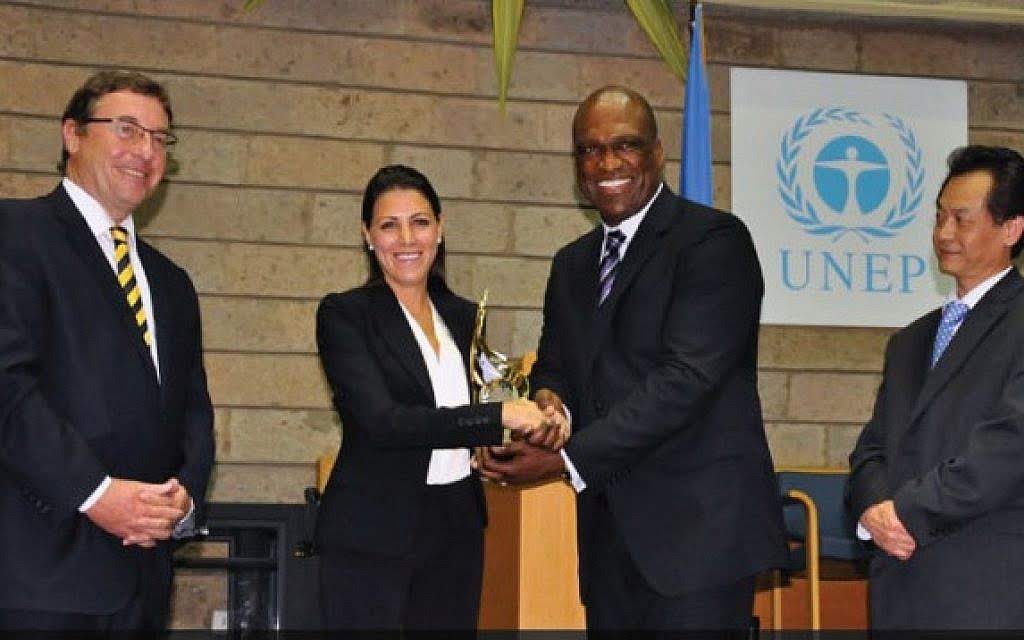 From left to right: Achim Steiner, Head of UNEP, John Ashe, President of the UN General Assembly, Yiping Zhou, Director, UNOSSC.
From left to right: Achim Steiner, Head of UNEP, John Ashe, President of the UN General Assembly, Yiping Zhou, Director, UNOSSC.
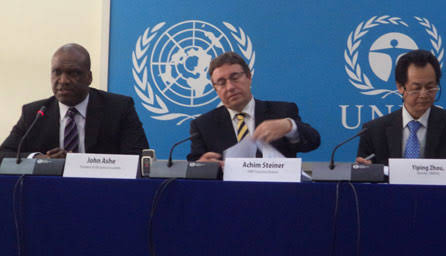 From left to right: John Ashe, President of the UN General Assembly, Achim Steiner, Head of UNEP, Yiping Zhou, Director of UNOSSC. In 2015 John Ashe was arrested by the FBI and "charged with tax fraud for failure to report or pay income taxes on the over $1 million he received in bribes in 2013 and 2014." In 2006, the U.S. Senate Committee on Homeland Security and Governmental Affairs heard testimony alleging the awarding of a prize to the Secretary-General secured the post of Head of UNEP. In 2016, a UNDP audit rated the UNOSSC headed by Yiping Zhou "unsatisfactory". In November 2013 "More than $450 million was pledged between investors, green businesses, governments and other parties at the 2013 Global South-South Development Expo as hundreds of participants exchanged Southern-grown ideas, solutions and technologies throughout the week-long event." announced jointly by Ashe, Steiner and Zhou in Nairobi, Kenya.
From left to right: John Ashe, President of the UN General Assembly, Achim Steiner, Head of UNEP, Yiping Zhou, Director of UNOSSC. In 2015 John Ashe was arrested by the FBI and "charged with tax fraud for failure to report or pay income taxes on the over $1 million he received in bribes in 2013 and 2014." In 2006, the U.S. Senate Committee on Homeland Security and Governmental Affairs heard testimony alleging the awarding of a prize to the Secretary-General secured the post of Head of UNEP. In 2016, a UNDP audit rated the UNOSSC headed by Yiping Zhou "unsatisfactory". In November 2013 "More than $450 million was pledged between investors, green businesses, governments and other parties at the 2013 Global South-South Development Expo as hundreds of participants exchanged Southern-grown ideas, solutions and technologies throughout the week-long event." announced jointly by Ashe, Steiner and Zhou in Nairobi, Kenya.
2014
June
UN News: UN concert 'sets stage' for new global development agenda
 UN General Assembly (UNGA) President John Ashe was arrested by the FBI in New York in 2015 and "charged with tax fraud for failure to report or pay income taxes on the over $1 million he received in bribes in 2013 and 2014."
UN General Assembly (UNGA) President John Ashe was arrested by the FBI in New York in 2015 and "charged with tax fraud for failure to report or pay income taxes on the over $1 million he received in bribes in 2013 and 2014."
2015
March
July
CIA allegedly worked with Macau casinos to spy on China: read the report
August
Macau Daily Times: UN Holds High-Level Strategy Forum in Town for South-South Cooperation
September
ABCNews: FBI Arrests Chinese Millionaire Once Tied to Clinton $$ Scandal
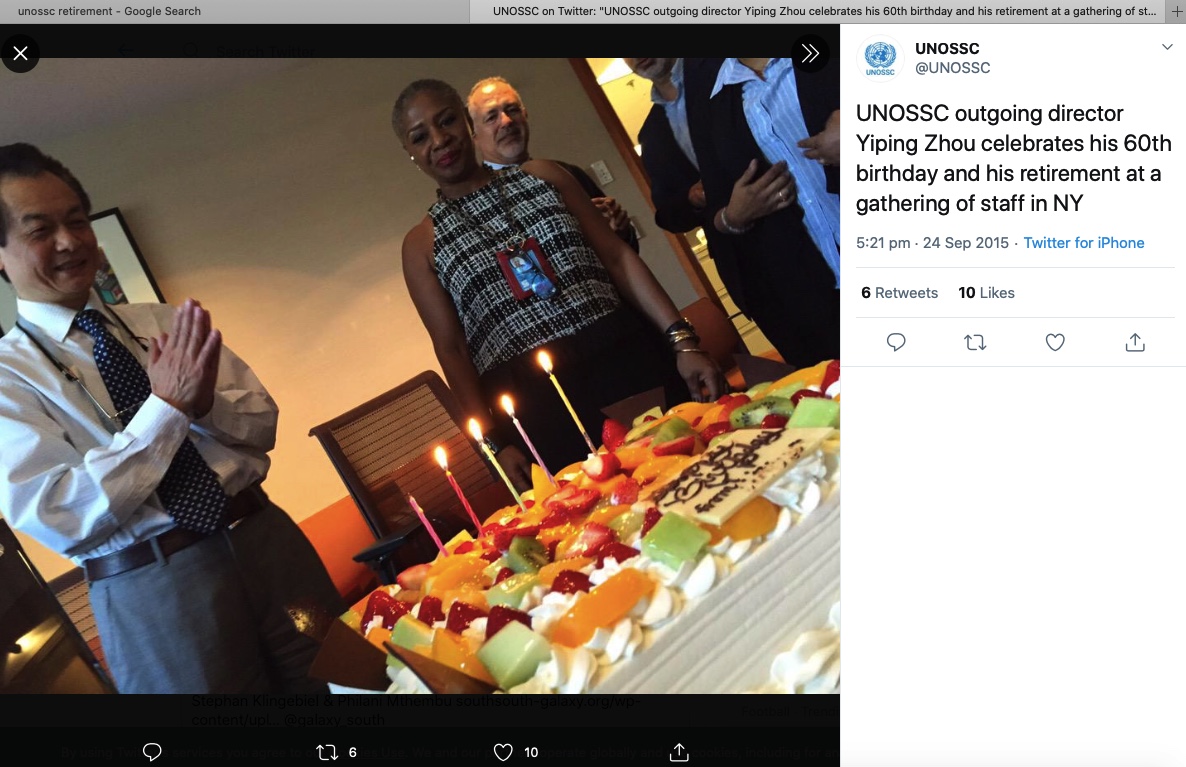 UNOSSC Director Yiping Zhou retires.
UNOSSC Director Yiping Zhou retires.
 Google image search.
Google image search.
October
News24: UN Looks at Donations Linked to Bribery Scandal
The New York Times: Former U.N. President and Chinese Billionaire Are Accused in Graft Scheme
Jhon William Ashe, Presidente saliente de la Asamblea General de la ONU preso por corruption
The Sydney Morning Herald: Australia-China social queen Sheri Yan arrested for bribery
Vice: Feds Say Former UN General Assembly President Lived Large Off Chinese Bribes
Telegraph: United Nations officials charged with accepting massive bribes from China businessmen
Agence France-Presse: Corruption charges dampen launch of new UN global goals
People Daily: Ban orders probe into bribe claims as FBI cites Kenya
United News of India: US charges expected in UN corruption probe involving Macau developer - source
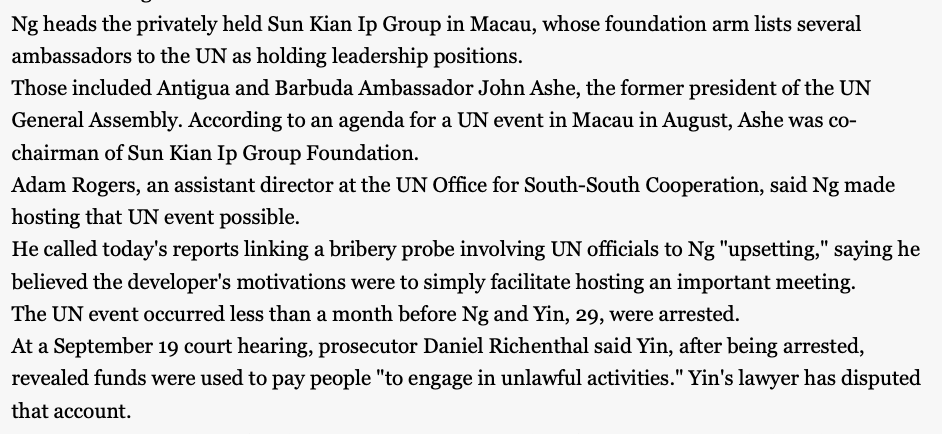 "Adam Rogers ... said Ng made hosting the UN event possible. He called today's reports linking a bribery probe involving UN officials 'upsetting,' saying he believed the developer's motivations were to simply facilitate an important meeting." (United News of India, October 6, 2015)
"Adam Rogers ... said Ng made hosting the UN event possible. He called today's reports linking a bribery probe involving UN officials 'upsetting,' saying he believed the developer's motivations were to simply facilitate an important meeting." (United News of India, October 6, 2015)
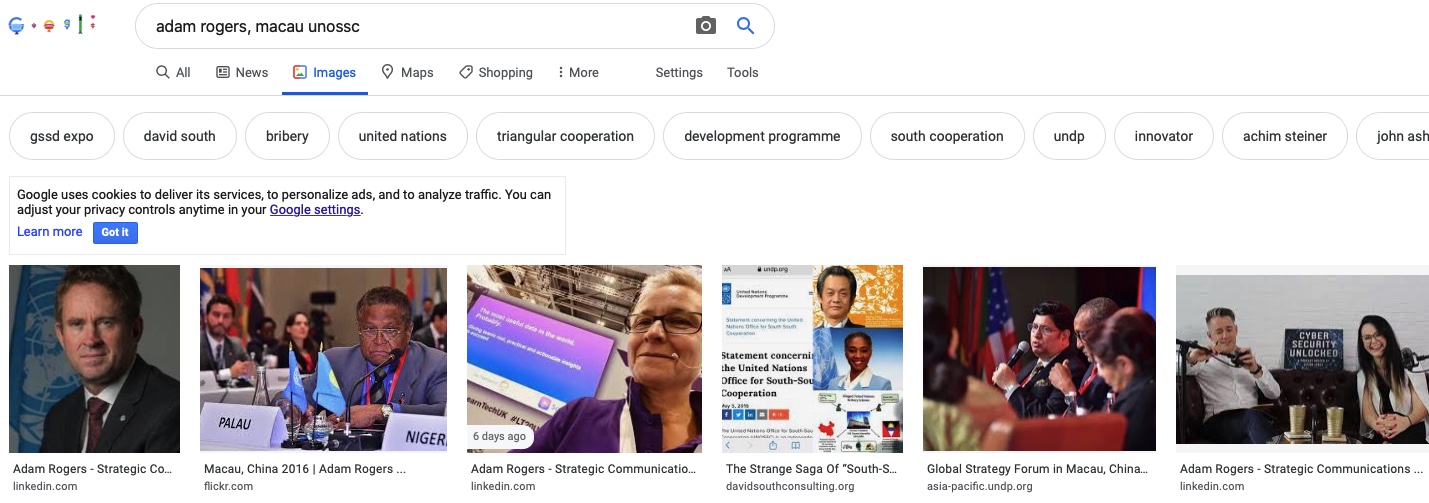 "Adam Rogers ... said Ng made hosting the UN event possible. He called today's reports linking a bribery probe involving UN officials 'upsetting,' saying he believed the developer's motivations were to simply facilitate an important meeting." (United News of India, October 6, 2015). (Source: Google image search). It has been awhile (five years) since Canadian national Adam Rogers (far left in Google image search) has publicly discussed his role in organising the Macau event with known sex trafficker and convicted briber Ng Lap Seng.
"Adam Rogers ... said Ng made hosting the UN event possible. He called today's reports linking a bribery probe involving UN officials 'upsetting,' saying he believed the developer's motivations were to simply facilitate an important meeting." (United News of India, October 6, 2015). (Source: Google image search). It has been awhile (five years) since Canadian national Adam Rogers (far left in Google image search) has publicly discussed his role in organising the Macau event with known sex trafficker and convicted briber Ng Lap Seng.
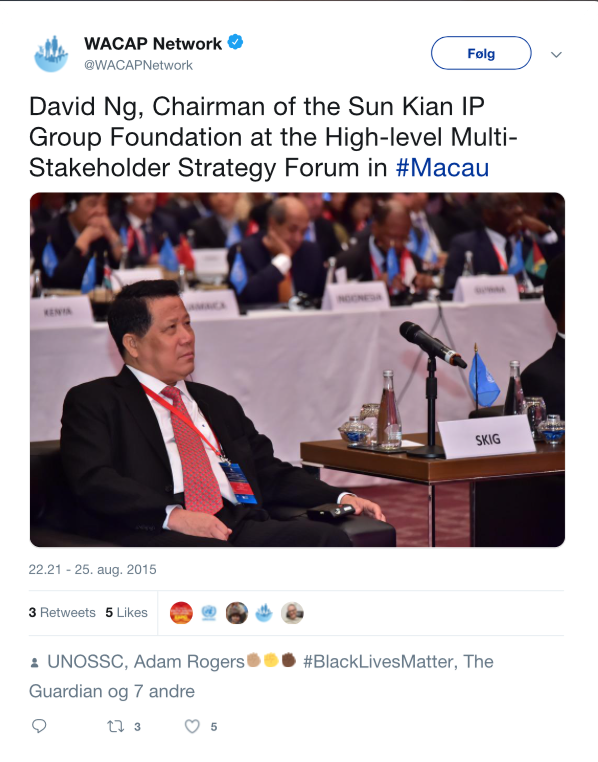 The WACAP Network (World Alliance of Cities Against Poverty) was coordinated by Adam Rogers. Pictured in this Tweet by WACAP is Ng Lap Seng - "kingpin of the international slave prostitution trade" - seated at the High-level Forum in Macau, August 2015.
The WACAP Network (World Alliance of Cities Against Poverty) was coordinated by Adam Rogers. Pictured in this Tweet by WACAP is Ng Lap Seng - "kingpin of the international slave prostitution trade" - seated at the High-level Forum in Macau, August 2015.
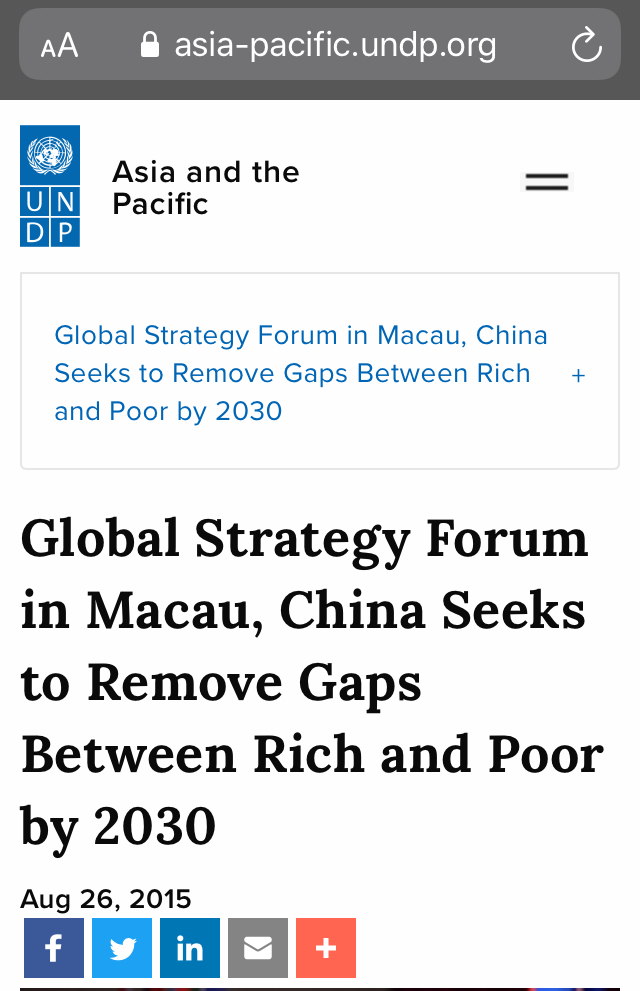 According to the US Department of Justice, Ng Lap Seng-funded South-South News and the High-Level Multi-Stakeholders Strategy Forum held from 25-26 August 2015 (also funded by Ng Lap Seng through the Sun Kian Ip Group Foundation) were both used “in a scheme to bribe United Nations ambassadors to obtain support to build a conference center in Macau that would host, among other events, the annual United Nations Global South-South Development Expo.”
According to the US Department of Justice, Ng Lap Seng-funded South-South News and the High-Level Multi-Stakeholders Strategy Forum held from 25-26 August 2015 (also funded by Ng Lap Seng through the Sun Kian Ip Group Foundation) were both used “in a scheme to bribe United Nations ambassadors to obtain support to build a conference center in Macau that would host, among other events, the annual United Nations Global South-South Development Expo.”
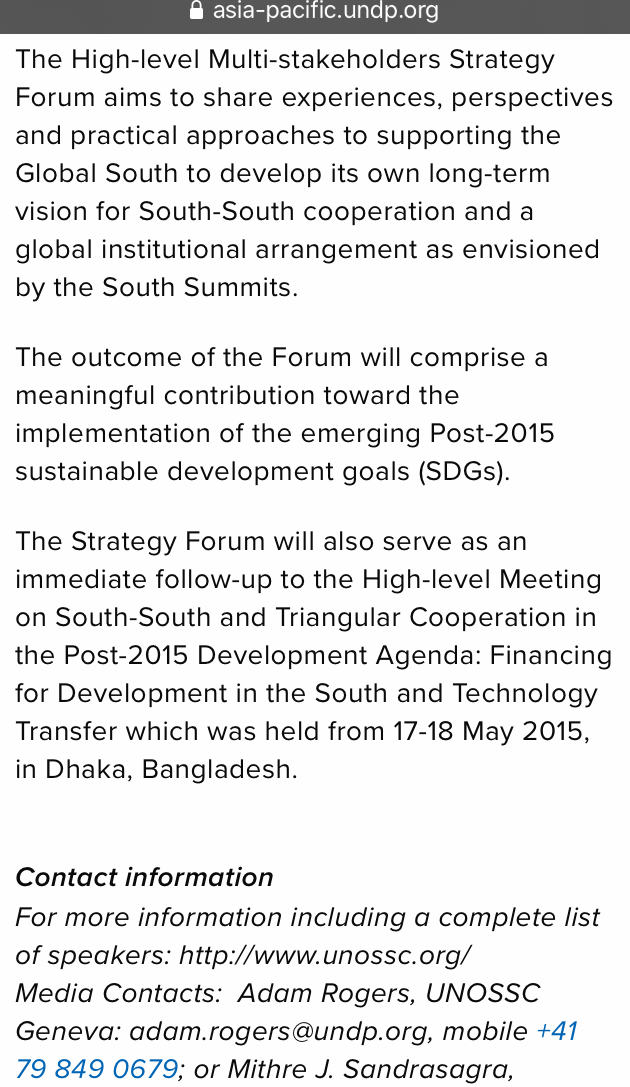
Despite being delisted by the UN Global Compact on 9 April 2015, the United Nations took money from the Sun Kian Ip Group. The United Nations Office for South-South Cooperation (UNOSSC) ran a High-Level Multi-Stakeholders Strategy Forum from 25-26 August 2015 funded by the Sun Kian Ip Group. Casino owner and event funder Ng Lap Seng was convicted of bribing UN ambassadors and his news service, South-South News, was used as a “conduit for bribery and money laundering”. He is believed to be associated with the Wo On Lok triad, which is involved in “prostitution and pornography and trafficking in children”, and Seng is characterised as a “kingpin of the international slave prostitution trade” in risk assessments.
November
Nikkei Asian Review: U.S. prosecutors allege Ng paid bribes until arrest
"Ng is charged with paying $500,000 in bribes to former United Nations diplomat John W. Ashe, primarily to get him to push for the construction of a "multibillion dollar" U.N. expo center in Macau for the benefit of Ng's Sun Kian Ip Group."
"Statements and briefs filed by the prosecutors indicate Ng's financial activities in the U.S. surged this year in the weeks before and after an Aug. 25-26 U.N. conference in Macau at which some 200 delegates endorsed the construction of a "South-South Expo" center in the city."
"Ashe played a prominent role at the Macau meeting both as chairman of the U.N. South-South Steering Committee for Sustainable Development and as co-chairman of Ng's Sun Kian Ip Group Foundation, which sponsored the event."
"Francis Lorenzo, who has been charged with acting as a middleman for Ng's alleged bribes, played a similar range of roles at the Macau meeting. He was there as executive president of the South-South steering committee and the International Organization for South-South Cooperation, president of the Sun Kian Ip Group Foundation and deputy U.N. ambassador for the Dominican Republic. Around 20 U.N. ambassadors attended the meeting."
"The Sun Kian Ip Group Foundation donated $1.5 million to the U.N. Office for South-South Cooperation to help finance the Macau meeting and another one held in Dhaka in May; the foundation earlier this year offered the U.N. office a further $13.5 million but U.N. officials have said that will not be accepted as the organization has launched multiple reviews of its ties to the foundation following the arrests of Ng and Ashe."
December
Draft Audit Report | Office of Audit and Investigations (No. 1580, December 2015): https://beta.documentcloud.org/documents/20270645-unngosscdraftauditicp
 The UNOSSC Director during the scope of the audit was Yiping Zhou.
The UNOSSC Director during the scope of the audit was Yiping Zhou.

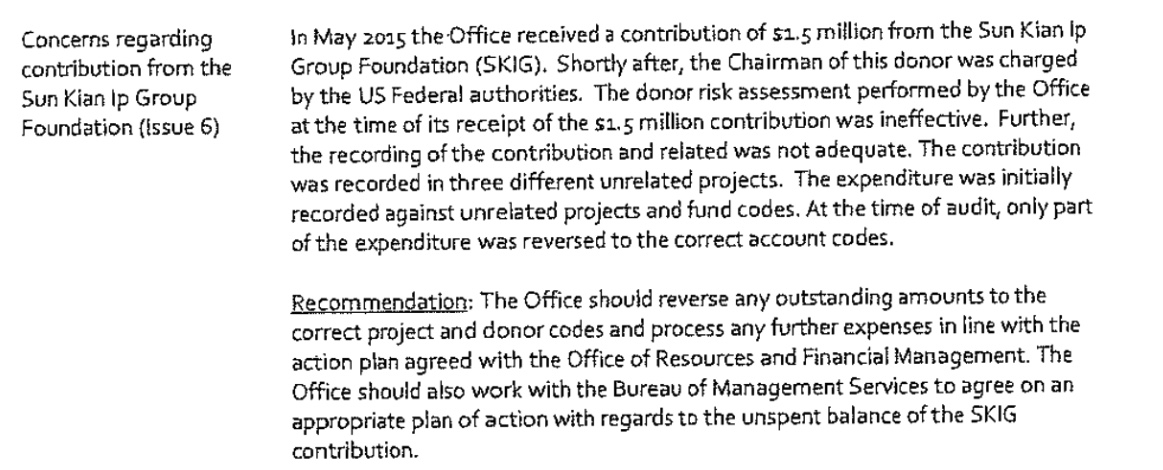
 The UNOSSC Deputy Director during the scope of the audit was Inyang Ebong-Harstrup.
The UNOSSC Deputy Director during the scope of the audit was Inyang Ebong-Harstrup.

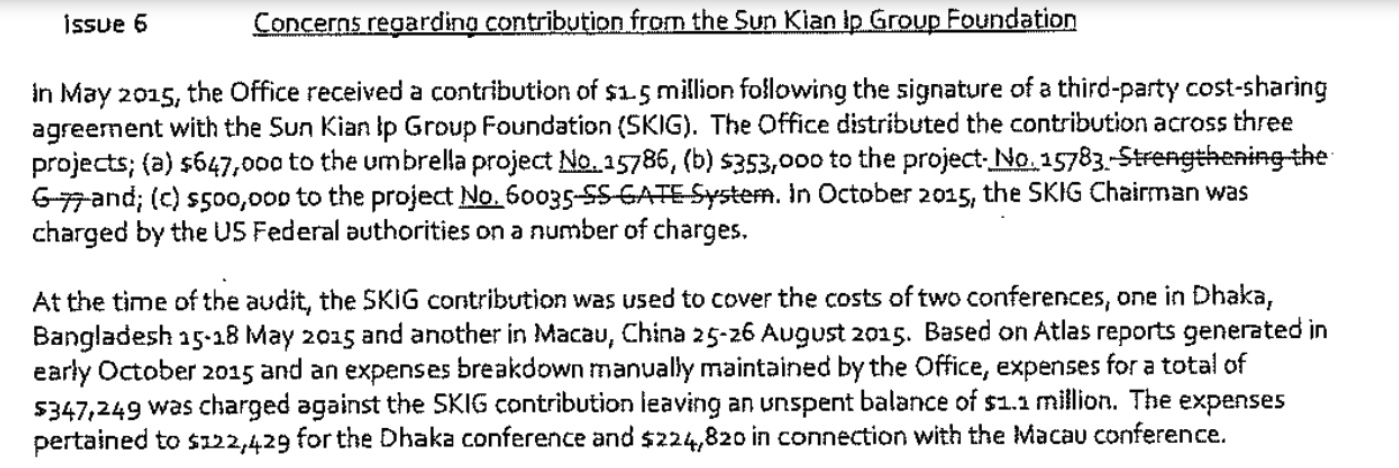

2016
March
Courthouse News: United Nations Bribery Scandal Snares Gala VP
PassBlue: John Ashe, Ex-UN Diplomat Facing Criminal Charges, Goes Begging
April
Reuters: U.N. news outlet at center of bribery case defends its intergrity
Macau Business Daily: Audit uncovers trail of 'support'
"Local billionaire Ng Lap Seng made use of five non-government organisations (NGOs) which are all affiliated to his real estate investment firm Sun Kian Ip Group to interact with six departments of the United Nations in various ways – such as sponsoring their events and funding staff travel – discloses the latest published internal audit report by the Office of Internal Oversight Service (OIOS) of the United Nations (UN).
The internal audit report, which was undertaken at the request of the Secretary-General of the UN and was released over the weekend, presents evidence that the local businessman’s attempts to curry favour with the UN could date back to 2008, when one of his NGOs was listed as a participant in the organisation’s Global Compact initiative.
According to OIOS, the five NGOs that Ng was using to interact with UN bodies are the Global Sustainability Foundation, International Organisation for South-South Co-operation, World Harmony Foundation, South-South News and Sun Kian Ip Group Foundation."
"The UN audit body stated in the report that Sun Kian Ip Group had offered iPads to all participants for a co-sponsored event titled ‘High Level Multi Stakeholder Strategy Forum on South-South and Triangular Co-operation’ in the Special Administrative Region last August.
The local developer contributed US$1.5 million (MOP12 million) to the United Nations Development Programme (UNDP) for the event, which was attended by a number of UN Secretariat staff, OIOS said.
The report reads that the proffered iPads all had 64GB capacity and were engraved with the logo of the organisers on the back.
‘They received the iPads at the registration desk upon arrival, where they were informed that the forum was a ‘paperless event’; all documents relating to its meetings or presentations had been pre-loaded in the device for their use,’ OIOS wrote, adding that ‘there was no attempt by the organisers to take back the iPads’ when the event was concluded.
According to the audit department, three UN staff members who attended the forum only handed over the devices after the commencement of the audit. In particular, one from the Global Compact Office stated to the audit body that he kept the iPad for himself."
"The UN audit also found that Ng’s self-owned news outlet South-South News had funded travel for a staff member of the UN Department for General Assembly and Conference Management for two seminars in Hong Kong and Macau last April and August, respectively. The two seminars were both on the topic of ‘South-South Co-operation’.
Another staff member of the United Nations Human Settlements Programme (UN-Habitat) was funded by the news company to participate in a high-level meeting in Hong Kong in April 2012. The audit report stated that the UN-Habitat later signed a memorandum with South-South News as a media partner for co-operation on the ‘World Urban Campaign’ in July 2012.
South-South News had actually been accorded media accreditation and provided office space in the UN secretariat by the UN Department of Public Information since 2010, the report claimed."
"Recent leaks from the Panama Papers have disclosed that such a company of the local businessman was established in the British Virgin Islands in May 2010, indicating the news outlet had sponsored UN events on at least three occasions."
"In the report, OIOS highly criticised the lack of due diligence checks by UN departments in selecting their partners, allowing the organisation to be involved with parties ‘whose interests may be at odds with those of the UN’.
‘Various resolutions of the General Assembly have recognised the importance of developing partnerships with the private sectors, NGOs and civil society… However, engaging in partnerships requires that a robust due diligence process is established and consistently applied to ensure that the attendant risks are mitigated,’ the audit body said.
‘The above instances of non-compliance with due diligence requirements exposed the organisation to the risk that it could get involved with external parties whose interests may be at odds with those of the United Nations – particularly its integrity, independence and impartiality,’ it concluded."
"Ng Lap Seng, Macau businessman charged by US authorities with bribing former United Nations leaders - Owned a BVI firm that ran South-South News, which had been granted the right to be stationed in the UN headquarters despite its lack of journalistic track record."
May
Reuters: Auditors rebuke U.N. development agency after U.S. indictments
August
2017
June
ABC News: ASIO investigation targets Communist Party links to Australian political system
The Sydney Morning Herald: China's Operation Australia: Payments, power and our politicians
July
The Sydney Morning Herald: Charges loom for ex-intelligence official Roger Uren after ASIO raid
AP: UN ambassador testifies he didn't know what 'bribe' meant
"Lorenzo testified Ng paid him up to $50,000 monthly to push the ambitious multibillion-dollar project along and funneled another $300,000 to former U.N. General Assembly President John Ashe, who was charged in the case before he died last year in an accident at home.
Over several days, Assistant U.S. Attorney Douglas Zolkind elicited from Lorenzo an unsavory depiction of the ease with which Lorenzo and Ashe accepted and sometimes solicited tens of thousands of dollars to supplement modest salaries as ambassadors.
Within months of meeting Ng in late 2009, Lorenzo testified, he agreed to supplement his $72,000 salary at the U.N. with $20,000 a month as president of Ng’s new not-for-profit, South South News.
“Did you have any experience in media or in news reporting?” Zolkind asked.
“No,” Lorenzo said."
December
Macau Business: MB Aug | House of Cards
"The political endeavours of Macau tycoon Ng Lap Seng over the years have seen his business empire grow across the continents, but at the ultimate price - behind bars."
Macau News Agency: Macau in 2017 | The case of Ng Lap Seng - Politics
"A summary of the corruption case against local businessman Ng Lap Seng."
2018
March
April
Macau Daily Times: Prosecutors Want Six Years in Ng Lap Seng Sentencing
Reuters: Chinese-born Executive Pleads Guilty in U.N. Bribery Case
May
ABS-CBN News: Chinese Billionaire Sentenced Four Years in UN Scandal
The New York Times: Macau Tycoon Gets 4 Years in Prison for Bribing U.N. Diplomats
News Americas: Jail for Chinese Billionaire Who Bribed Caribbean Born UN Officials
Reuters: Macau Billionaire Gets Four Years Prison for Bribing U.N. Officials
LawFuel: Billionaire Jailed for 4 Years Over Casino Bribery Role
The Sydney Morning Herald: Political Donor Chau Chak Wing Behind UN Bribe Scandal, Parliament told
Channel NewsAsia: Chinese-Australian Political Donor 'Linked to UN Bribery Scandal'
The New York Times: In Australia, Fears of Chinese Meddling Rise on U.N. Bribery Case Revelation
The Australian: China's UN Power Game
The FCPA Blog: Is China Trying to Corrupt the UN?
"The trial evidence showed that Ng bribed Ambassador Ashe and Ambassador Lorenzo (together, the “Ambassadors”) in exchange for their agreement to use their official positions to advance Ng’s interest in obtaining formal UN support for the Macau Conference Center. As the evidence demonstrated at trial, Ng paid the Ambassadors in a variety of forms. For example, Ng appointed Ambassador Lorenzo as the President of South-South News, a New York-based organization — funded by Ng — which described itself as a media platform dedicated to advancing the implementation of the UN’s Millennium Development Goals, a set of philanthropic goals. Ng provided bribe payments to Ambassador Lorenzo through South-South News by transmitting payments from Macau to a company in the Dominican Republic affiliated with Ambassador Lorenzo’s brother (the “Dominican Company”). Through South-South News, Ng also made payments to Ambassador Ashe, including to Ambassador Ashe’s wife, who was paid in her capacity as a “consultant” to South-South News, and to an account that Ambassador Ashe had established, purportedly to raise money for his role as President of UNGA."
June
ArtVoice: Judicial Watch: Russia, China may have bribed Clintons
November
The Sydney Morning Herald: Beijing's secret plot to infiltrate UN used Australian insider
"Charming and gregarious, Sheri Yan was once known for hosting soirees around the world where diplomats mingled with millionaire business executives and socialites. But her life changed forever in October 2015, when she was arrested by FBI agents in New York and accused of bribing the former president of the United Nations General Assembly, John Ashe."
"In 2012, the woman who had left China almost two decades earlier was preparing to launch her own organisation to help the UN reduce global poverty and aid development.
The Global Sustainability Foundation would, according to Yan’s pitch, be backed by 'political leaders, successful business people, and members of the world’s best-known families.'"
"When Ng set up his UN-affiliated NGO South-South News, the FBI again found evidence that the Communist Party was influencing the organisation and determining the agenda it would push as it hosted conferences and published news stories."
"In August 2013, South South News, a U.N.-accredited nonprofit bankrolled by Macau casino tycoon Ng Lap Seng, began depositing $20,000 each month into Ashe’s bank account. Ng was already on the radar of U.S. authorities: In the 1990s, Senate investigators identified him as the likely conduit of hundreds of thousands of dollars in illegal donations to the Democratic National Committee and 1996 Clinton re-election campaign."
"Now almost two decades later, Ng was using South-South News, a small New York-based media outlet that covered development and U.N.-related news, as a front to pay Ashe to get his support for a project to build a U.N. conference center in Macau, according to U.S. prosecutors. In addition to enhancing China’s power and prestige, the establishment of a U.N. conference center in Macau would present China with significant intelligence-gathering and recruitment opportunities, said one former senior U.S. intelligence official."
"The center never materialized, but court filings say that Ng was secretly being investigated as part of a counter-espionage probe of a suspected Chinese spy, and business associate of Ng’s, named Qin Fei; Ng paid to renovate Qin’s $10 million mansion on New York’s Long Island. The mansion was being converted into a conference center for South-South News, Ng’s U.N. nonprofit, said Ng’s lawyer, Hugh Mo, who denies his client had any connection with Chinese intelligence (though Qin, Mo said, was being wiretapped under the Foreign Intelligence Surveillance Act)."
"Yan, like Ng Lap Seng, created her own U.N. nonprofit, the Global Sustainability Foundation. And like South-South News, it also received U.N. accreditation and championed the U.N’s millennium goals, an ambitious set of voluntary, country-by-country targets aimed at reducing global poverty. Yan also arranged for bribes to Ashe to benefit three other Chinese businessmen, say U.S. court documents."
2020
February
Miami Herald: China's news organizations in the United States are really spy agencies
"China’s reporter-agents collect and analyze critical information about the United States and other countries. Bureaus then package and deliver it to their masters back home. In the process, they also repurpose it as a quasi-journalistic propagandistic product for a mass foreign audience in their newspapers and broadcasts. To audiences, it looks and feels like real news, but it’s really just a byproduct of intelligence gathering. ...
"China is willing to spend billions of dollars to promote its United Front work and support the growing network of Xinhua and CGTN bureaus around the world."
Read more here: https://www.miamiherald.com/opinion/op-ed/article240696381.html#storylink=cpy
March
New York Times: U.S. Officials Push for Expelling Suspected Chinese Spies at Media Outlets
"... Trump administration officials have intensified discussions over whether to evict employees of Chinese media outlets who they say mainly act as spies. ...
"Some American intelligence officials have pushed for years to expel employees of Chinese media organizations who they say mainly file intelligence reports. ...
"Any expulsion of Chinese employees at media outlets accused of conducting intelligence work could include ones based at the United Nations,"
Further Reading
ONU: la grande imposture by Pauline Lietar
"Le bureau de la Cooperation Sud-Sud l'a trouve tres 'humble, tres heureux d'organiser une reunion et d'etre plus proche de l'ONU', declare Inyang Ebong-Harstrup, une des membres de l'equipe."
An excellent documentary by investigative journalist Pauline Lietar provides further details on the John Ashe/Ng Lap Seng connection, as well as many other cases of UN corruption: ONU, impunité à tous les étages https://www.magnetotv.com/fr/documentary/onu/
China Digital Times: Sinopsis and Jichang Lulu: UN with Chinese Characteristics
Official photographs of the Macau High-Level Multi-Stakeholders Strategy Forum and its participants (including John Ashe) can be found here: http://www.barbarossayilgan.com/high-level-multi-stakeholders-strategy-forum-macau-china-2015/0sxxmg0jh0ss5keym50d5p63diztpd
Statement concerning the United Nations Office for South-South Cooperation
"The United Nations Office for South-South Cooperation (UNOSSC) is an independent entity created by the General Assembly in 1974, General Assembly resolution 3251(XXIX), to support cooperation among developing countries.
UNOSSC receives its mandate and policy framework from General Assembly decisions and resolutions. UNOSSC also serves as the Secretariat of the High-level Committee (HLC) on South-South Cooperation, a subsidiary body of the General Assembly.
UNOSSC is hosted by UNDP and, as is the case with similar entities, is expected to follow UNDP rules and regulations, including those pertaining to financial and HR management. UNOSSC is likewise subject to UNDP’s oversight and due diligence instruments."
UNDP’s Office of Audit and Investigation (OAI) recently published an Audit of UNOSSC which rated the Office ‘unsatisfactory’.
The Audit makes 16 recommendations with the objective of improving UNOSSC’s effectiveness in the areas of: governance; programme and project activities; and operations." Excerpt from Statement (5 May 2016)
 The Audit makes 16 recommendations with the objective of improving UNOSSC’s effectiveness in the areas of: governance; programme and project activities; and operations." Excerpt from Statement (5 May 2016)
The Audit makes 16 recommendations with the objective of improving UNOSSC’s effectiveness in the areas of: governance; programme and project activities; and operations." Excerpt from Statement (5 May 2016)
UNDP Accountability: Disclosure of internal audit reports
Audit Ratings
"On the basis of its audit results, OAI assigns an overall rating for the business unit audited. OAI uses four rating categories: "satisfactory"; "partially satisfactory/some improvement needed"; partially satisfactory/major improvement needed; and "unsatisfactory". A definition of each audit rating is available below."
Audit Ratings - Definition
"A rating of "satisfactory" means that the assessed governance arrangements, risk management practices and controls were adequately established and functioning well. Issues identified by the audit, if any, are unlikely to affect the achievement of the objectives of the audited entity/area.
A rating of “partially satisfactory/some improvement needed” means that the assessed governance arrangements, risk management practices and controls were generally established and functioning, but need some improvement. Issues identified by the audit do not significantly affect the achievement of the objectives of the audited entity/area.
A rating of “partially satisfactory/major improvement needed” means that the assessed governance arrangements, risk management practices and controls were established and functioning, but need major improvement. Issues identified by the audit could significantly affect the achievement of the objectives of the audited entity/area.
A rating of “unsatisfactory” means that the assessed governance arrangements, risk management practices and controls were either not adequately established or not functioning well. Issues identified by the audit could seriously compromise the achievement of the objectives of the audited entity/area."
Reuters: Auditors rebuke U.N. development agency after U.S. indictments (3 May 2016)
How to Report Corruption and Bribery at UNDP (United Nations Development Programme)
The Office of Audit and Investigations (OAI) "provides UNDP with effective independent and objective internal oversight that is designed to improve the effectiveness and efficiency of UNDP's operations in achieving its development goals and objectives through the provision of internal audit and related advisory services, and investigation services."
They can be directly emailed here: reportmisconduct@undp.org
How to Report Human Trafficking at the United Nations
Key Terms and Definitions
Bribe: To try to make someone do something for you by giving them money, presents, or something else that they want.
Bribery: The crime of giving someone money or something else of value, often illegally, to persuade that person to do something you want.
Corruption: Dishonest or fraudulent conduct by those in power, typically involving bribery.
Discovery: The process of finding information, a place, or an object, especially for the first time, or the thing that is found. Part of a legal process in which the lawyers from one side in a case give documents relating to their case to the other side, before the trial begins.
Due Diligence: Action that is considered reasonable for people to be expected to take in order to keep themselves or others and their property safe. The detailed examination of a company and its financial records, done before becoming involved in a business arrangement with it.
Espionage: The practice of spying or use of spies, typically by governments to obtain political and military information.
FCPA: The Foreign Corrupt Practices Act of 1977, as amended, 15 U.S.C. §§ 78dd-1, et seq. ("FCPA"), was enacted for the purpose of making it unlawful for certain classes of persons and entities to make payments to foreign government officials to assist in obtaining or retaining business. Specifically, the anti-bribery provisions of the FCPA prohibit the willful use of the mails or any means of instrumentality of interstate commerce corruptly in furtherance of any offer, payment, promise to pay, or authorization of the payment of money or anything of value to any person, while knowing that all or a portion of such money or thing of value will be offered, given or promised, directly or indirectly, to a foreign official to influence the foreign official in his or her official capacity, induce the foreign official to do or omit to do an act in violation of his or her lawful duty, or to secure any improper advantage in order to assist in obtaining or retaining business for or with, or directing business to, any person.
Human Trafficking: Human trafficking is modern-day slavery and involves the use of force, fraud, or coercion to obtain some type of labor or commercial sex act. Every year, millions of men, women, and children are trafficked in countries around the world, including the United States. It is estimated that human trafficking generates many billions of dollars of profit per year, second only to drug trafficking as the most profitable form of transnational crime. To report staff of the United Nations either involved in human trafficking or facilitating human trafficking, contact 1-866-347-2423.
Money Laundering: The crime of moving money that has been obtained illegally through banks and other businesses to make it seem as if the money has been obtained legally.
Sustainable Development Goals (SDGs): The Division for Sustainable Development Goals (DSDG) seeks to provide leadership and catalyse action in promoting and coordinating implementation of internationally agreed development goals, including the seventeen Sustainable Development Goals (SDGs).
UN: The United Nations is an international organization founded in 1945. It is currently made up of 193 Member States. The mission and work of the United Nations are guided by the purposes and principles contained in its founding Charter.
UNDP: United Nations Development Programme. On the ground in about 170 countries and territories, UNDP works to eradicate poverty while protecting the planet.
UN Global Compact: A call to companies to align strategies and operations with universal principles on human rights, labour, environment and anti-corruption, and take actions that advance societal goals.
UN General Assembly: The General Assembly is one of the six main organs of the United Nations, the only one in which all Member States have equal representation: one nation, one vote. All 193 Member States of the United Nations are represented in this unique forum to discuss and work together on a wide array of international issues covered by the UN Charter, such as development, peace and security, international law, etc.
UNOSSC: United Nations Office for South-South Cooperation (formerly the Special Unit for South-South Cooperation). The United Nations Office for South-South Cooperation (UNOSSC) is a knowledge hub providing advisory and consulting services to all stakeholders on South-South and triangular cooperation. It enables developing countries to effectively face their development challenges and harness opportunities to address them.
Wo On Lok Triad: Shui Fong (水房幫 - Lit. Water Room Gang), also known as the Wo On Lok (WOL) is one of the main Triadgroups in Southern China, operating especially in Hong Kong, Macau and Chinese communities abroad. Today it is one of Hong Kong's most active triad groups, along with Sun Yee On, 14K and the "Wo" family of triads, especially the Wo Shing Wo. It runs extortion operations, loan sharking, narcotics and the control of nightclubs, mahjong dens and massage parlours. According to police, its turf extends across Yau Ma Tei, Tsim Sha Tsui, Mong Kok and Sham Shui Po.[1] In Macau, Shui Fong is one of the "Four Major Gangs" (四大黑幫), the others being Wo Shing Yee, 14K and the Big Circle Gang.
Note:
1) This blog post provides a summary of the unfolding corruption case that targeted the United Nations from 2010 and was revealed in 2015 by US authorities. It is offered as a resource for those interested in the role played by corruption in international development and international institutions, or who are interested in case law and the application of the Foreign Corrupt Practices Act. If anything, the case stands as a brazen act of criminality and corruption, and, with South-South News still based out of the United Nations and still functioning as a news service, maybe proof the UN has a long way to go to walk the talk on fighting corruption.
In future blog posts we will explore what the ongoing trials have revealed about this case and the United Nations and what lessons can be learned.
2) Some stories and legal documents have been blocked on search engines when doing name searches for various individuals. To avoid missing key stories and documents related to this case (and, if you are a journalist, wasting precious time), we will keep this blog post up-to-date as more material related to this multinational bribery and corruption plot becomes public. We believe it is unethical for a person or persons who were receiving public funds, enjoying the privileges of an international salary and post-retirement pension, to avoid scrutiny for their actions, especially when the law is broken. We also believe it is a danger to others if entities or employers retain the services of these corrupt individuals and risk unwittingly exposing themselves to future criminal prosecutions.
Support this blog post and updates. We accept payments and donations here: https://www.paypal.me/davidsouthconsulting
 David South
David South
Update and Summary as of February 2020 | '2015 United Nations Bribery Scandal'
"We will be asking: is bribery business as usual at the UN?", US Attorney Preet Bharara, October 2015
In autumn 2015 arrests by the FBI (Federal Bureau of Investigation) in New York (home of the United Nations headquarters) unveiled a multinational, multi-year scheme to launder money into the US and bribe United Nations (UN) officials, in particular to support the building of a new UN “Geneva of Asia” in Macau, China for the GSSD Expo (Global South-South Development Expo), an annual gathering organised by the UNOSSC (United Nations Office for South-South Cooperation).
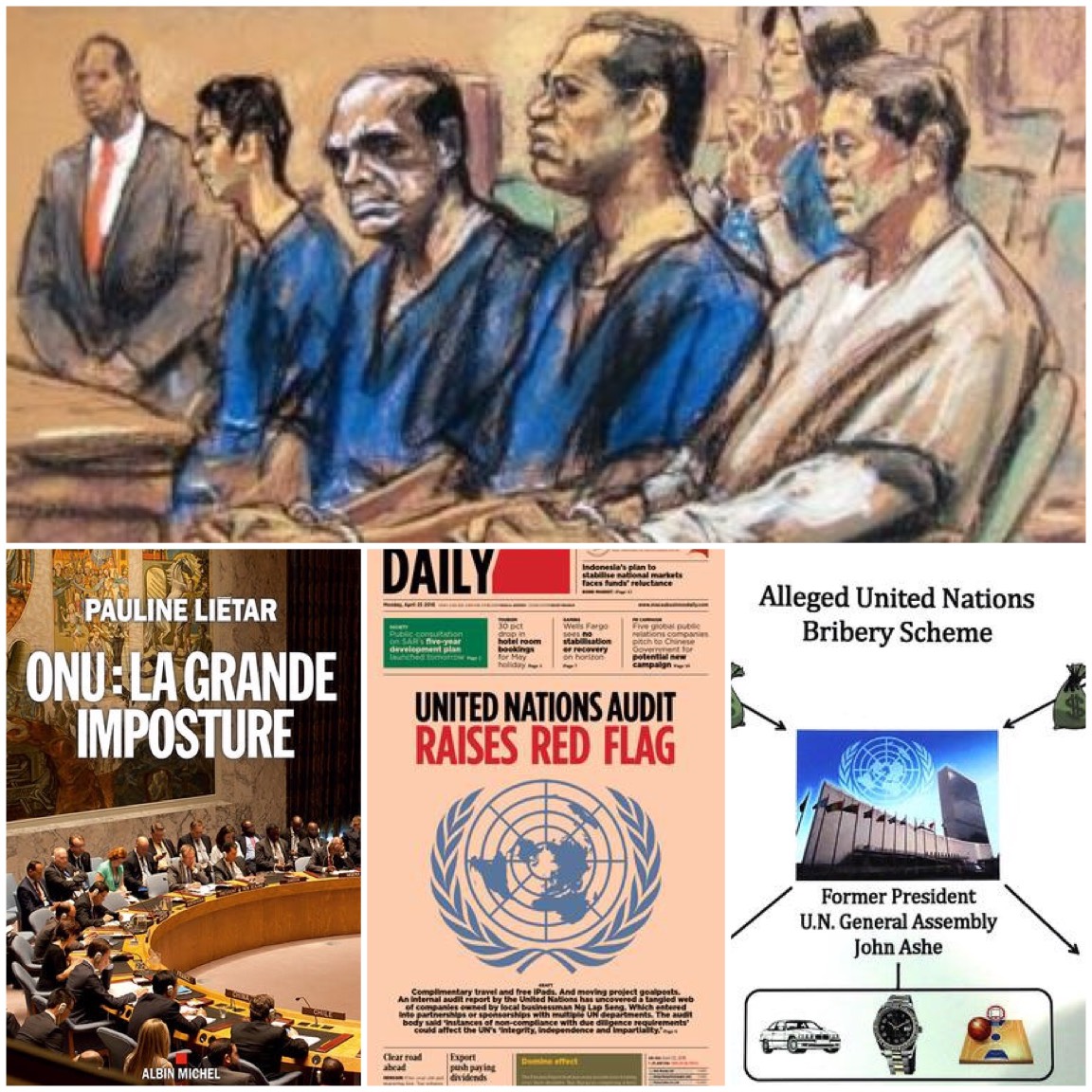 "Corruption at any level of government undermines the rule of law and cannot be tolerated. But corruption is especially corrosive when it occurs at an international body like the United Nations. By paying bribes to two U.N. ambassadors to advance his interest in obtaining formal support for the Macau conference center project, Ng Lap Seng tried to manipulate the functions of the United Nations. The sentence handed down today demonstrates that those who engage in corruption will pay a heavy price and serves as a reminder that no one stands above the law.", Acting Assistant General John P. Cronan, May 2018Foreign Policy called the case one of "The Worst Corruption Scandals of 2015". Read the US Justice Department Docket here: https://www.justice.gov/criminal-fraud/fcpa/cases/ng-lap-seng-and-jeff-c-yin.
"Corruption at any level of government undermines the rule of law and cannot be tolerated. But corruption is especially corrosive when it occurs at an international body like the United Nations. By paying bribes to two U.N. ambassadors to advance his interest in obtaining formal support for the Macau conference center project, Ng Lap Seng tried to manipulate the functions of the United Nations. The sentence handed down today demonstrates that those who engage in corruption will pay a heavy price and serves as a reminder that no one stands above the law.", Acting Assistant General John P. Cronan, May 2018Foreign Policy called the case one of "The Worst Corruption Scandals of 2015". Read the US Justice Department Docket here: https://www.justice.gov/criminal-fraud/fcpa/cases/ng-lap-seng-and-jeff-c-yin.
The US Attorney for the Southern District of New York at the time, Preet Bharara, released a flowchart showing how the alleged bribery and money laundering scheme targeting the United Nations worked. A series of court trials followed (2015-2018) for the various co-conspirators, including senior executives and board members for South-South News and the Global Sustainability Foundation (see below), culminating in the 27 July 2017 conviction of the ring leader of the scheme, Macau casino billionaire Ng Lap Seng, on six counts "for his role in a scheme to bribe United Nations ambassadors to obtain support to build a conference center in Macau that would host, among other events, the annual United Nations Global South-South Development Expo". He used the news service South-South News as a "conduit for bribery and money laundering" at the United Nations, according to the FBI, something admitted to by various co-conspirators in court and under oath. On 11 May 2018 Ng Lap Seng was sentenced to 4 years in prison.
Two NGOs plus the office of the President of the United Nations General Assembly (UNGA) were used by the co-conspirators to perpetrate the scheme, according to court records and the Department of Justice (DOJ):
1) South-South News: According to the United States Department of Justice, the executives of New York-based South-South News used the “21st century media platform dedicated to covering the stories of global development from the United Nations, governments, the private sector, and civil society” as a “conduit” for bribery and money laundering at the United Nations. South-South News executives were arrested in autumn 2015, along with former UN General Assembly President John Ashe (who was charged with “Filing False Income Tax Returns”). South-South News (which still exists) was founded in 2010 by Ng Lap Seng and Ambassador Francis Lorenzo with US $12 million. According to the FBI, Seng did this with the objective of bribing UN officials, laundering money into the United States - bringing US $4.5 million into the US in cash over a period of two years - and lobbying for the building of a new UN facility in Macau for the annual Global South-South Development Expo (GSSD Expo) - a "Geneva of Asia". The new facility would cost US $3 billion and be built by Ng Lap Seng's construction company.
“The Government identified two specific acts that the Ambassadors obtained from other UN officials: (1) a letter of support for the Macau Conference Center signed by Yiping Zhou ("Zhou"), the then-Director of UNOSSC (together with other letters of support signed by Zhou, the "UNOSSC Support Letters”);”
“At various points during the trial, the Government presented evidence that the Ambassadors used their influence over Zhou to obtain the UNOSSC Support Letters and the Pro Bono Agreement. (See, e.g., Tr. 665:4-676:23, 764:10-766:25, 1217:18-1227:16, 1314:11-1316:23, 1345:14-1350:25.) During closing arguments, the Government argued, among other things, that Ng paid bribes to obtain the UNOSSC Support Letters and the Pro Bono Agreement. (See, e.g., Tr. 3934:18-23.) At no point during trial did defense counsel object to the UNOSSC Support Letters or the Pro Bono Agreement or to the Government's reliance on those documents as evidence of official acts, nor did defense counsel request an adjournment to attempt to call Zhou or anyone else affiliated with the UNOSSC to testify.” (UNITED STATES OF AMERICA, v. NG LAP SENG, et al., United States District Court, S.D. New York. May 9, 2018.)
 "Adding soft media power to hard real estate, Ng sponsored the press organization South-South News, whose name alludes to the United Nations Office for South-South Cooperation. Lorenzo collected $25,000 a month serving as president of South-South News, and was “gifted” a $3.6 million apartment in Trump World Tower near U.N. headquarters.".
"Adding soft media power to hard real estate, Ng sponsored the press organization South-South News, whose name alludes to the United Nations Office for South-South Cooperation. Lorenzo collected $25,000 a month serving as president of South-South News, and was “gifted” a $3.6 million apartment in Trump World Tower near U.N. headquarters.".
2) Global Sustainability Foundation (GSDF): According to the United States Department of Justice, the executives of the Global Sustainability Foundation, whose mandate was “dedicated to supporting the Millennium Development Goals (MDGs) and the Sustainable Development Goals (SDGs)”, were arrested and charged “for paying more than $800,000 in bribes to John W. Ashe (“Ashe”), the late former Permanent Representative of Antigua and Barbuda (“Antigua”) to the United Nations (“UN”) and 68th President of the UN General Assembly. [Sheri] Yan pled guilty in January 2016, and was sentenced today by U.S. District Judge Vernon S. Broderick.”
U.S. Attorney Bharara stated: “As she admitted in court at her guilty plea, Shiwei [Sheri] Yan bribed the President of the UN General Assembly with hundreds of thousands of dollars to further private business interests. For her role in corrupting the United Nations, Yan will serve time in a federal prison.”
Sheri (Shiwei) Yan’s husband is Roger Uren, a former ASIO (Australian Security Intelligence Organisation) employee. Australia is part of the ‘Five Eyes’ intelligence sharing alliance, along with the United States, the UK, Canada and New Zealand.
UNGA President John Ashe said at the GSDF launch in 2014, “the Foundation is being launched at the ‘sunset of the MDGs era,’ and as the SDGs era approaches. He noted the difficulty in moving from eight goals and 18 targets as under the MDGs, to the 17 goals and 169 proposed for the SDGs, and said this is where the GSDF has an important role to play.”
3) Office of the President of the United Nations General Assembly (UNGA): One of the co-conspirators in the scheme was former UN General Assembly President John Ashe. He died due to a weightlifting accident before he had to testify in a New York court room. According to Farrukh Khan, Program Manager on Climate Finance at the UN Secretary-General's Office, Ashe played a key role in the negotiations for the Sustainable Development Goals (SDGs).
South-South News Executives, Co-conspirators and Charges
Ng Lap Seng, Macau casino owner and founder and funder of South-South News: On 11 May 2018 Ng Lap Seng was sentenced to 4 years in prison for being the ring leader of an elaborate, multi-year, multinational scheme to bribe UN officials and launder money into the United States.
Francis Lorenzo, Deputy Permanent Representative to the UN for the Dominican Republic and co-founder of South-South News: Bribery. Admitted to his role in the bribery scheme but was spared prison because of his cooperation in providing testimony. He was ordered to do community service and to pay US $243,965 in restitution.
Julia Vivi (Vivian) Wang, Vice President of South-South News: Money laundering (https://www.justice.gov/criminal-fraud/file/1061036/download). She pleaded guilty to the charges on 4 April 2018.
Jeff Yin, aide to Ng Lap Seng. On 28 February 2018 Jeff Yin received a seven-month prison sentence related to the corruption scandal.
Global Sustainability Foundation (GSDF) Executives and Charges
Shiwei (Sheri) Yan, Founder, Vice Chair and CEO for the Global Sustainability Foundation (GSF) (http://sdg.iisd.org/news/global-sustainable-development-foundation-launched-at-un/), whose purpose was “dedicated to supporting the Millennium Development Goals (MDGs) and the Sustainable Development Goals (SDGs)”: Conspiracy to Commit Bribery. Sentenced to 20 months in prison.
Heidi Hong Park (Piao), Finance Director for the GSF: Conspiracy to Commit Bribery.
John Ashe, President of UNGA 68 and Honorary Chairman of GSDF: Filing False Income Tax Returns.
The SDG Knowledge Hub posted an “Editor’s Note” in 2018 stating “In October 2015, Sheri Yan, John Ashe and several other individuals were charged in connection with a multi-year scheme to pay bribes to Ashe. The payments were delivered in part in relation to Ashe’s role as Honorary Chairman of GSDF. In July 2016, Sheri Yan was sentenced in Manhattan federal court to 20 months in prison for paying more than $800,000 in bribes to Ashe. Ashe died before he was sentenced in the case.”
President of the UN General Assembly and Charges
John W. Ashe, President of UN General Assembly: Filing False Income Tax Returns
Macau: World Centre for Money Laundering, Sex Trafficking (Sources: UNODC and US Department of State)
According to the UNODC’s (United Nations Office on Drugs and Crime) Regional Representative Jeremy Douglas, “Macau has for a long time been seen as a place to launder money and for organized crime to do business, and while times and methods have changed it still [is] unfortunately seen this way by many,” he told Macau Business.
The money comes from drugs, counterfeit goods and medicines, people-smuggling, trafficking of wildlife and timber, and sex trafficking.
According to the United States Department of State Trafficking in Persons Report 2019, Macau is a centre for sex trafficking.
Ng Lap Seng's Sun Kian Ip Group was barred from the UN's Global Compact, according to The Wall Street Journal, and Seng was flagged up as a person not to do business with, including by Interpol, “The International Criminal Police Organization”. Despite this track record and multiple warning signs, both South-South News and the United Nations took money from Ng Lap Seng.
Ng Lap Seng, in a 2010 assessment by International Risk Ltd., was found to be "characterized in the media as a 'Macau Crime Lord' and kingpin of the international slave prostitution trade". He is associated with the Wo On Lok triad (a triad believed by police to be heavily involved in global sex trafficking) (https://www.wsj.com/articles/SB888439204883313500).
UNOSSC
In 2015 the United Nations Office for South-South Cooperation (UNOSSC) was headed by Director Yiping Zhou and Deputy Director Inyang Ebong-Harstrup. In 2016 an audit conducted by UNDP’s Office of Audit and Investigation (OAI) found it “unsatisfactory” - the lowest rating - “A rating of ‘unsatisfactory’ means that the assessed governance arrangements, risk management practices and controls were either not adequately established or not functioning well. Issues identified by the audit could seriously compromise the achievement of the objectives of the audited entity/area.” (https://www.undp.org/content/undp/en/home/presscenter/pressreleases/2016/05/05/statement-concerning-the-united-nations-office-for-south-south-cooperation.html).
"International civil servants should share the vision of their organizations. It is loyalty to this vision that ensures the integrity and international outlook of international civil servants; a shared vision guarantees that they will place the interests of their organization above their own and use its resources in a responsible manner.
The concept of integrity enshrined in the Charter of the United Nations embraces all aspects of an international civil servant’s behaviour, including such qualities as honesty, truthfulness, impartiality and incorruptibility. These qualities are as basic as those of competence and efficiency, also enshrined in the Charter.
If the impartiality of the international civil service is to be maintained, international civil servants must remain independent of any authority outside their organization; their conduct must reflect that independence. In keeping with their oath of office, they should not seek nor should they accept instructions from any Government, person or entity external to the organization. It cannot be too strongly stressed that international civil servants are not, in any sense, representatives of Governments or other entities, nor are they proponents of their policies. This applies equally to those on secondment from Governments and to those whose services have been made available from elsewhere. International civil servants should be constantly aware that, through their allegiance to the Charter and the corresponding instruments of each organization, member States and their representatives are committed to respect their independent status."
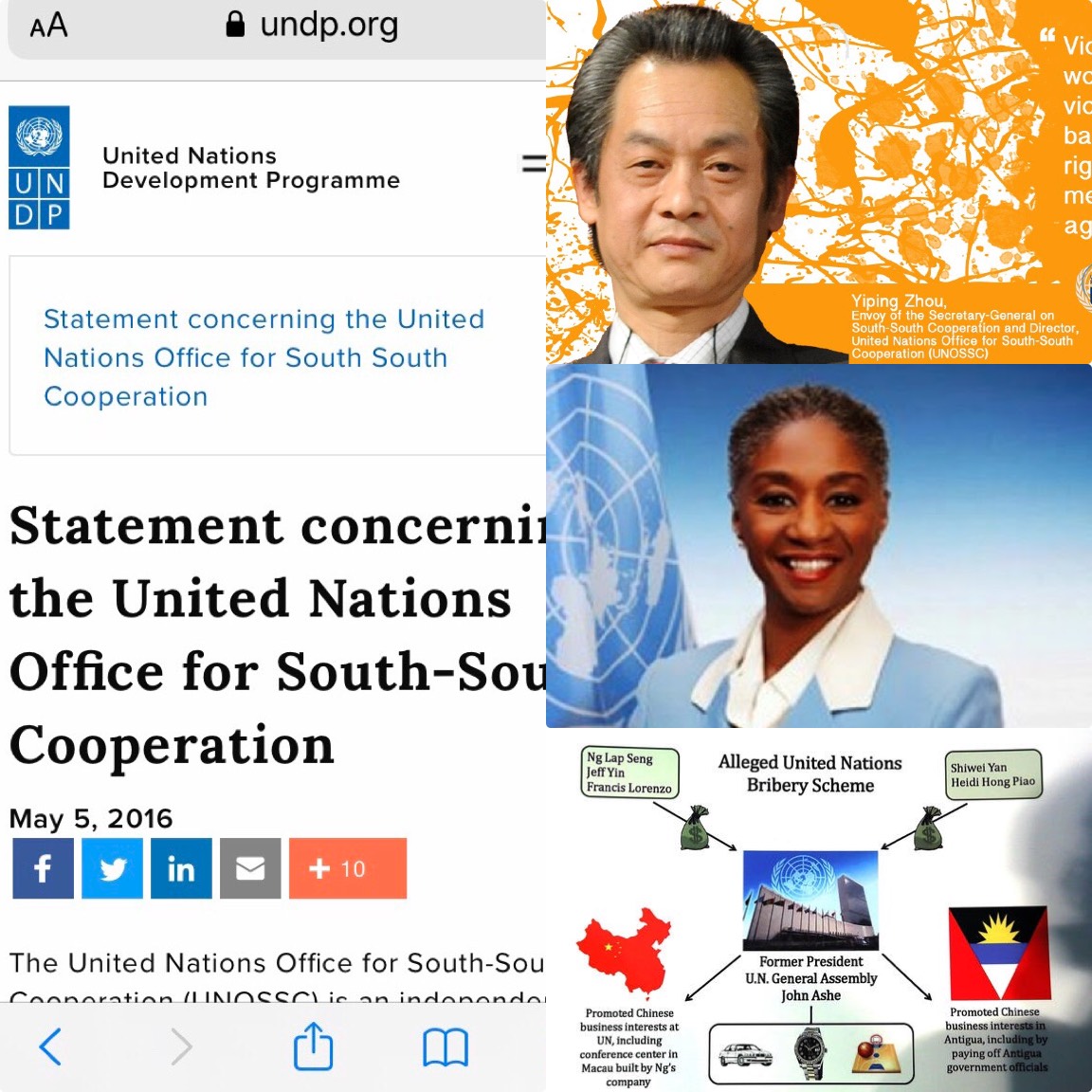 In March 2015 UNOSSC Director Yiping Zhou signed a cooperation agreement with the Sun Kian Ip Group of Macau to “set up a multi-partner trust fund to promote the cause of South-South Cooperation” (https://usanewsonline.com/2015/03/07/south-south-cooperation-and-chinese-sun-kian-ip-group-signs-cooperation-agreement/). In April 2015 UNOSSC Deputy Director Inyang Ebong-Harstrup (https://twitter.com/inyangeh) met with the Chairman of the Sun Kian Ip Group, Ng Lap Seng, in Macau (https://www.wsj.com/articles/u-n-team-had-cleared-group-at-center-of-bribery-case-1444432560). Inyang Ebong-Harstrup (https://twitter.com/inyangid2020) moved on to work as Chief of Partnerships for ID 2020 (https://medium.com/id2020/2018-end-of-year-letter-b740a83e9df3). Yiping Zhou moved on to become the Dean of the International Silkroad Institute, Shanghai Academy of Social Sciences (https://archive.shine.cn/opinion/chinese-perspectives/Conference-on-Belt-and-Road-highlights-market-potentials-and-challenges/shdaily.shtml). "South-South staff found him to be 'humble, very happy to host a meeting and become closer to the U.N.,' said Inyang Ebong-Harstrup, deputy director of the United Nations Office for South-South Cooperation, a division of the U.N., who met Mr. Ng in August when she traveled to Macau." The Wall Street Journal;(9 October 2015)
In March 2015 UNOSSC Director Yiping Zhou signed a cooperation agreement with the Sun Kian Ip Group of Macau to “set up a multi-partner trust fund to promote the cause of South-South Cooperation” (https://usanewsonline.com/2015/03/07/south-south-cooperation-and-chinese-sun-kian-ip-group-signs-cooperation-agreement/). In April 2015 UNOSSC Deputy Director Inyang Ebong-Harstrup (https://twitter.com/inyangeh) met with the Chairman of the Sun Kian Ip Group, Ng Lap Seng, in Macau (https://www.wsj.com/articles/u-n-team-had-cleared-group-at-center-of-bribery-case-1444432560). Inyang Ebong-Harstrup (https://twitter.com/inyangid2020) moved on to work as Chief of Partnerships for ID 2020 (https://medium.com/id2020/2018-end-of-year-letter-b740a83e9df3). Yiping Zhou moved on to become the Dean of the International Silkroad Institute, Shanghai Academy of Social Sciences (https://archive.shine.cn/opinion/chinese-perspectives/Conference-on-Belt-and-Road-highlights-market-potentials-and-challenges/shdaily.shtml). "South-South staff found him to be 'humble, very happy to host a meeting and become closer to the U.N.,' said Inyang Ebong-Harstrup, deputy director of the United Nations Office for South-South Cooperation, a division of the U.N., who met Mr. Ng in August when she traveled to Macau." The Wall Street Journal;(9 October 2015)
More on the Strange Saga of South-South News here: http://www.davidsouthconsulting.com/blog/2018/3/4/the-strange-saga-of-south-south-news-may-2018.html
The complexities of UN-associated media outlets receiving funding from wealthy benefactors is not isolated to South-South News. Is it okay to use UN themed or associated news services to launder money into the United States and/or to donate illegally obtained funds from the countries of the global South? Whilst US authorities do not think so (thus the many court cases and prosecutions), the UN itself has not been leading on exposing these activities. In fact, the UN continues to pump out messaging on anti-corruption and ethics in development when these activities are both unethical and illegal and occuring in its name and on its premises.
2014
2015
February
New York Times: TOWERS OF SECRECY: Jho Low, Well Connected in Malaysia, Has an Appetite for New York
2016
Devex: Will the development community face fallout from Malaysia's 1MDB corruption scandal?
"Late in 2014, just over a month before its financial relationship with the United Nations was set to expire, the humanitarian news agency IRIN found a new benefactor.
The Hong Kong-based Jynwel Charitable Foundation seemed to appear out of thin air. It did so in the form of its founder and director, Jho Taek Low, a young Malaysian financier and member of Prime Minister Najib Razak’s inner circle. Low joined U.N. officials and IRIN’s management team at a U.N. press conference to announce a gift that would secure IRIN’s future: $25 million from Jynwel to the news agency, to be delivered to IRIN over 15 years. The donation allowed the well-regarded news outlet, whose future had been in doubt, to spin off from the U.N. and relaunch as an independent, nonprofit organization.
Known for hosting lavish parties, buying luxury real estate and collecting expensive works of art, Low, through the Jynwel Charitable Foundation, has reoriented his public image around global development’s social calendar and attracted attention as an emerging-market donor and partner to high-profile development groups.
Low’s foundation sponsored the Social Good Summit in 2014 and 2015 and has given away millions of dollars, including to the United Nations Foundation, Panthera — which works to save big cats — and Keep A Child Alive, the AIDS-fighting organization co-founded by pop star Alicia Keys."
2020
April
Bloomberg: U.S. Returns $300 Million Jho Low-Linked Funds to Malaysia
"The U.S. returned to Malaysia another $300 million that was recovered as part of the Justice Department’s forfeiture lawsuits targeting assets that fugitive financier Low Taek Jho and his associates bought with funds allegedly stolen from the country’s 1MDB investment fund.
With the latest repatriation, the U.S. has sent $600 million back to Malaysia as part of the continuing effort to seize and liquidate the assets, including real estate, business investments, art work and jewelry, that Low, commonly known as Jho Low, his family and his cronies acquired with the money they are accused of siphoning from the state fund after it was set up in 2009."
What is the FCPA? “The Foreign Corrupt Practices Act of 1977, as amended, 15 U.S.C. §§ 78dd-1, et seq. ("FCPA"), was enacted for the purpose of making it unlawful for certain classes of persons and entities to make payments to foreign government officials to assist in obtaining or retaining business. Specifically, the anti-bribery provisions of the FCPA prohibit the willful use of the mails or any means of instrumentality of interstate commerce corruptly in furtherance of any offer, payment, promise to pay, or authorization of the payment of money or anything of value to any person, while knowing that all or a portion of such money or thing of value will be offered, given or promised, directly or indirectly, to a foreign official to influence the foreign official in his or her official capacity, induce the foreign official to do or omit to do an act in violation of his or her lawful duty, or to secure any improper advantage in order to assist in obtaining or retaining business for or with, or directing business to, any person.”
How to Report Corruption and Bribery at UNDP (United Nations Development Programme)
The Office of Audit and Investigations (OAI) "provides UNDP with effective independent and objective internal oversight that is designed to improve the effectiveness and efficiency of UNDP's operations in achieving its development goals and objectives through the provision of internal audit and related advisory services, and investigation services."
They can be directly emailed here: reportmisconduct@undp.org
Key words: Money laundering, #bribery, #FCPA, #trafficking, #SDGs, #southsouthnews
 David South
David South
"We will be asking: is bribery business as usual at the UN?", US Attorney Preet Bharara, October 2015
In 2006, a US Senate Hearing (Senate Hearing 109-957) titled the "UN Headquarters Renovation: No Accountability Without Transparency" before the Federal Financial Management, Government Information, and International Security Subcommitte of the Committee on Homeland Security and Governmental Affairs of the United States Senate (June 20, 2006), found "... a flagrant conflict of interest.", when the Secretary-General accepted US $500,000 prize, and that "two people appointed by Secretary-General Kofi Annan had been on the jury, and one of the other jury members he subsequently appointed to head the UN environment program in Nairobi, Achim Steiner, ... We, to this day, have no documentation of what actually happened with the money."
It shows there are serious concerns regarding high-level appointments and what motivates those decisions.
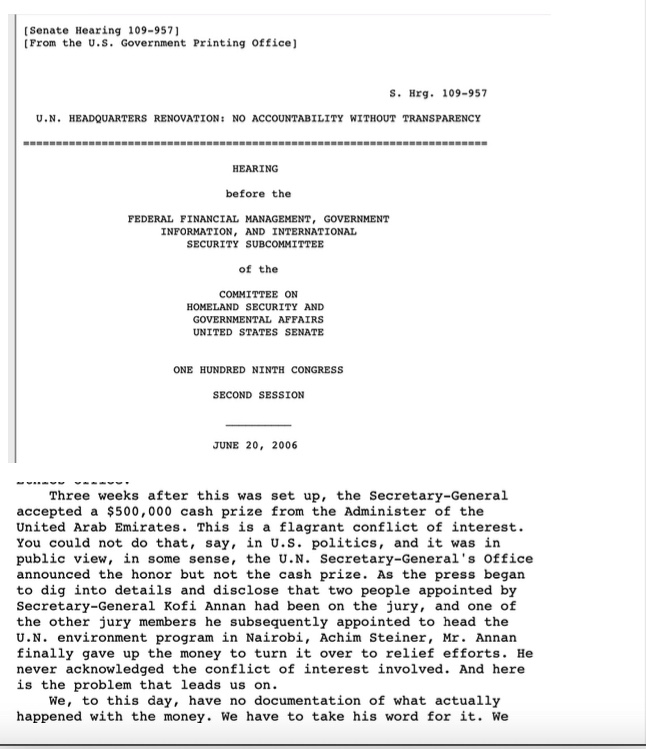 US Senate Hearing (Senate Hearing 109-957), UN Headquarters Renovation: No Accountability Without Transparency.
US Senate Hearing (Senate Hearing 109-957), UN Headquarters Renovation: No Accountability Without Transparency.
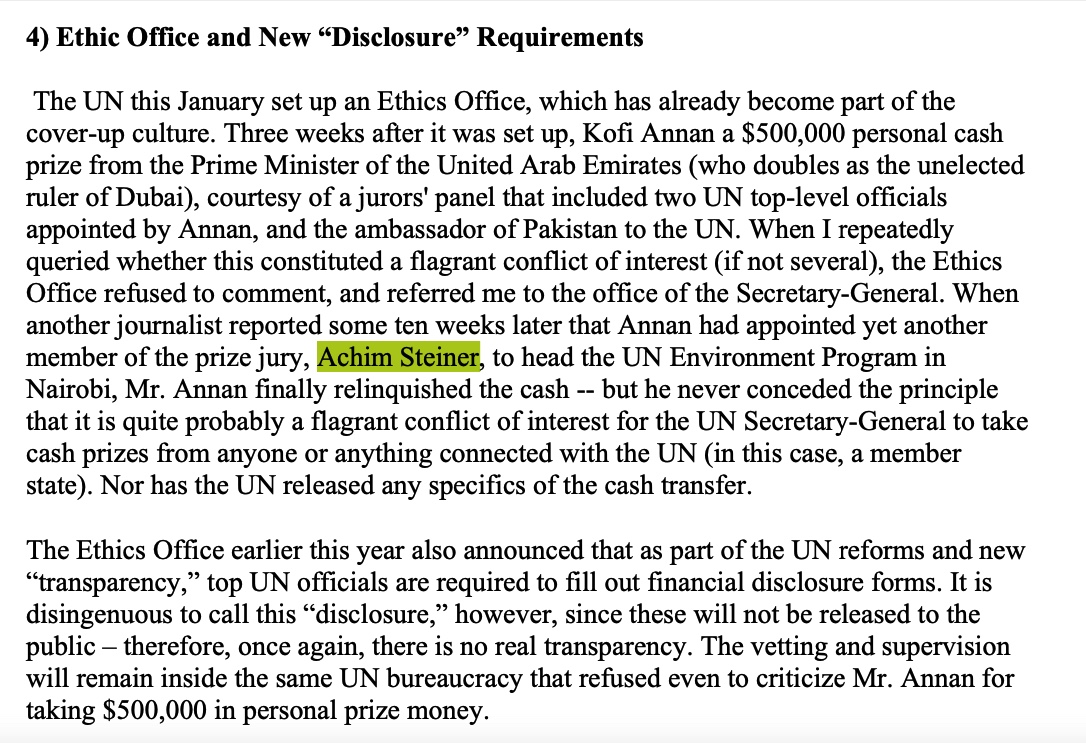 Written Testimony Of Claudia Rosett Journalist-in-Residence, The Foundation for the Defense of Democracies Before the U.S. Senate Committee on Homeland Security and Governmental Affairs Subcommittee on Federal Financial Management, Government Information and International Security, 20 June 2006.
Written Testimony Of Claudia Rosett Journalist-in-Residence, The Foundation for the Defense of Democracies Before the U.S. Senate Committee on Homeland Security and Governmental Affairs Subcommittee on Federal Financial Management, Government Information and International Security, 20 June 2006.
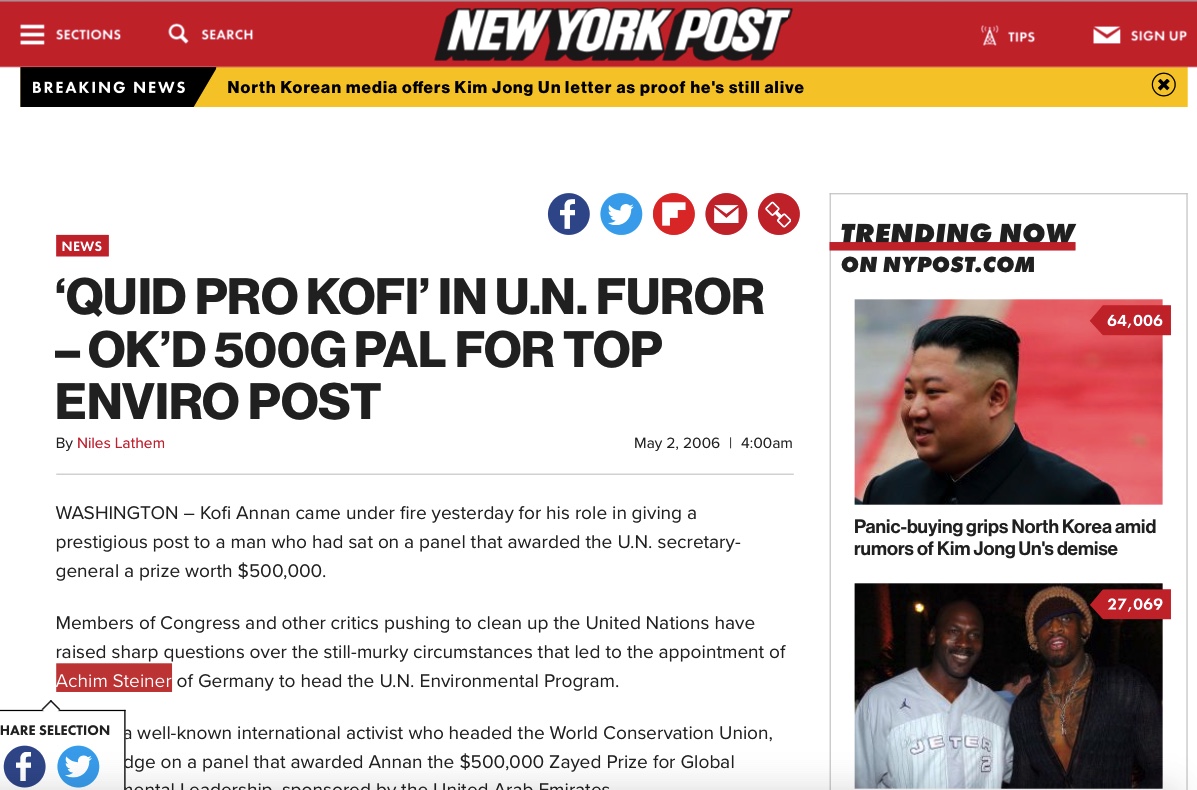 'Quid Pro Kofi' in U.N. Furor - OK'd 500G Pal For Top Enviro Post, New York Post, May 2, 2006. Important not to become the story, especially if it involves bribery accusations.
'Quid Pro Kofi' in U.N. Furor - OK'd 500G Pal For Top Enviro Post, New York Post, May 2, 2006. Important not to become the story, especially if it involves bribery accusations.
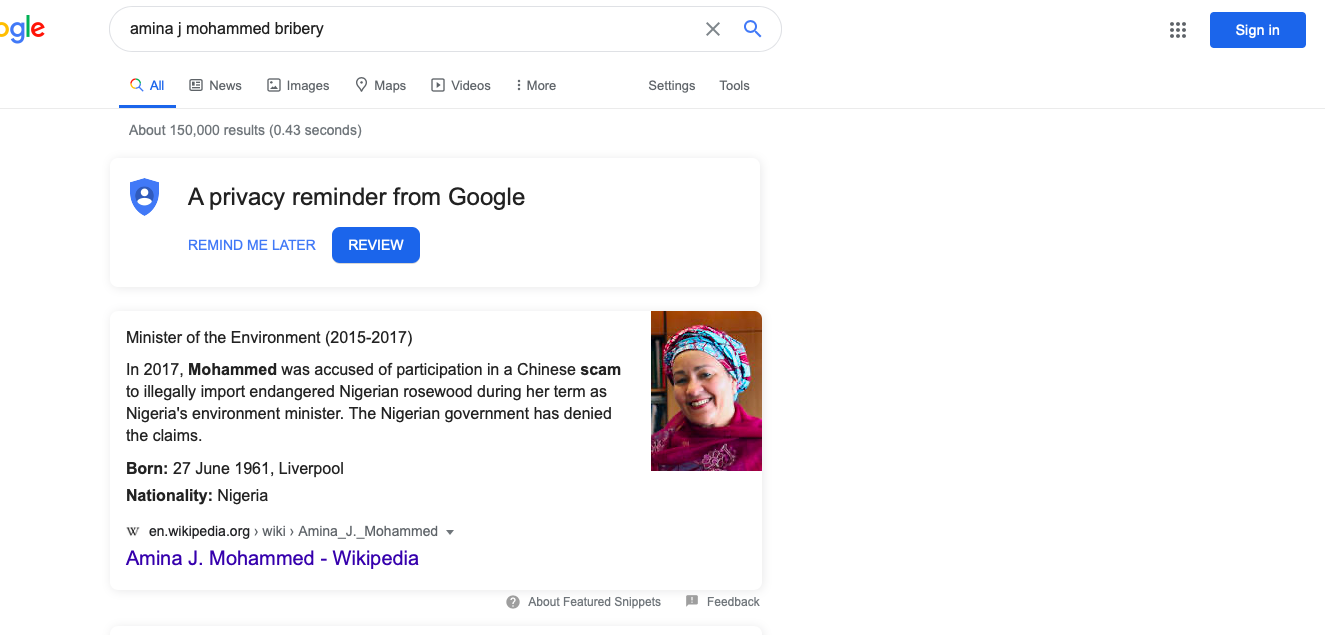
 David South
David South
I Spy With My Little Eye
This story from Bloomberg Businessweek has become highly contested. I have placed links below for readers to make up their own minds on these significant revelations.
 "The Big Hack: How China Used a Tiny Chip to Infiltrate U.S. Companies" (4 October 2018, Bloomberg Businessweek).
"The Big Hack: How China Used a Tiny Chip to Infiltrate U.S. Companies" (4 October 2018, Bloomberg Businessweek).
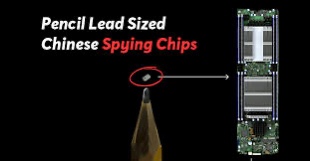 "Pencil Lead Sized Chinese Spying Chips".
"Pencil Lead Sized Chinese Spying Chips".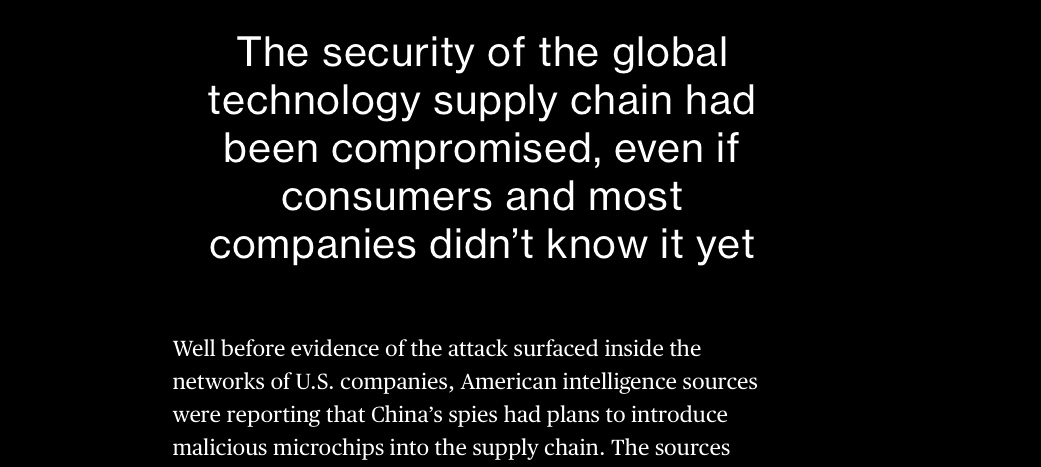 "The security of the global technology supply chain had been compromised, even if consumers and most companies didn’t know it yet" (4 October 2018, Bloomberg Businessweek).
"The security of the global technology supply chain had been compromised, even if consumers and most companies didn’t know it yet" (4 October 2018, Bloomberg Businessweek).
The “Big Hack” That Actually Happened – Chinese Military Implicated in Equifax Breach
Editorial: A year later, Bloomberg silently stands by its 'Big Hack' iCloud spy chip story
New dot connector infographic on the way!
 David South
David South
The Docket
From a legal perspective, the '2015 United Nations Bribery Scandal' which centered around Macau casino owner Ng Lap Seng, has two key components.
1) Criminal acts that violated the Foreign Corrupt Practices Act (FCPA) and tax avoidence violating US tax law.
2) National and international security violations and implications. As came forward in evidence presented in court testimony, this was much more than a few bad actors committing crimes for self-enrichment. Further revelations by the Australian security service, ASIO (Australian Security Intelligence Oganisation), showed this was a sophisticated operation with the intention of gaining control of aspects of the United Nations by bribing officials, diplomats and others. A key goal in this operation was the building of a 'Geneva of Asia' in Macau, China to host the annual GSSD Expo held by the United Nations Office for South-South Cooperation (UNOSSC).
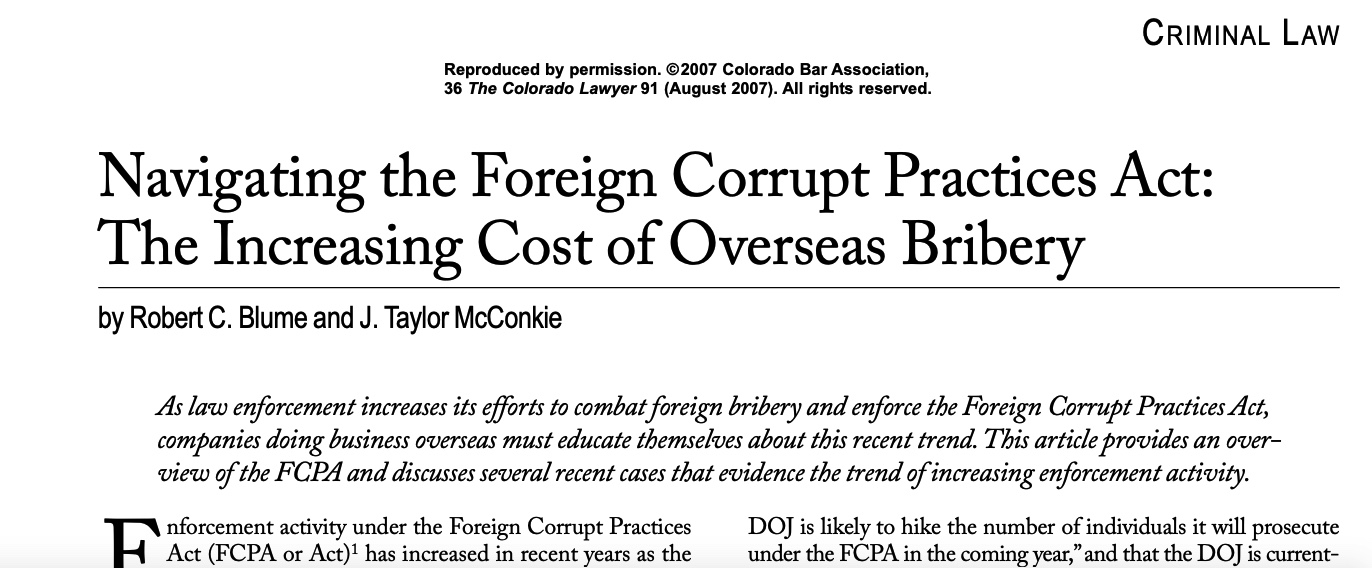 Navigating the Foreign Corrupt Practices Act: The Increasing Cost of Overseas Bribery
Navigating the Foreign Corrupt Practices Act: The Increasing Cost of Overseas Bribery
"... corrupt payments to officers and employees of public international organizations are prohibited by the FCPA’s anti-bribery provisions. Public international organizations covered by the FCPA include, among others: the United Nations, International Monetary Fund, World Bank, African Development Bank, Asian Development Bank, European Bank for Reconstruction and Development,Inter-American Development Bank,International Maritime Organizations, International Bank for Reconstruction and Development, International Finance Corporation, Multilateral Investment Guarantee Organization,Organization for African Unity,and the Organization of American States." (Navigating the Foreign Corrupt Practices Act: The Increasing Cost of Overseas Bribery by Robert C. Blume and J. Taylor McConkie)
FCPA Professor: Bribery Involving The United Nations (December 28, 2017)
"The United Nations has a number of anti-corruption initiatives. For starters, there is the United Nations Convention Against Corruption, it hosts the Conference of the States Parties (COSP) (the main policy-making body of the Convention), and the U.N.’s Global Compact states that “businesses should work against corruption in all its forms, including extortion and bribery.”
Instead of looking outward, perhaps the United Nations should look more inward as several Foreign Corrupt Practices Act enforcement actions ... have involved U.N. officials or U.N. programs."
Fun-loving criminals
Blue suits to orange jump suits
 FCPA,
FCPA,  Foreign Corrupt Practices Act,
Foreign Corrupt Practices Act,  GSSD Expo,
GSSD Expo,  Global South-South Development Expo,
Global South-South Development Expo,  MDGs,
MDGs,  SDGs,
SDGs,  South-South News,
South-South News,  Sustainable Development Goals,
Sustainable Development Goals,  UN,
UN,  UN cover-up,
UN cover-up,  United Nations,
United Nations,  triad in
triad in  21st century,
21st century,  Agenda 2030,
Agenda 2030,  Agenda 21,
Agenda 21,  Bribery,
Bribery,  Corruption,
Corruption,  Digital,
Digital,  Emerging Markets,
Emerging Markets,  FBI,
FBI,  GSSD,
GSSD,  GSSD Expo,
GSSD Expo,  Geopolitics,
Geopolitics,  Global South,
Global South,  ID2020,
ID2020,  Influence Operations,
Influence Operations,  International Development,
International Development,  Interpol,
Interpol,  Media,
Media,  Millennium Development Goals,
Millennium Development Goals,  Money Laundering,
Money Laundering,  Panama Papers,
Panama Papers,  South-South News,
South-South News,  Sustainable Development Goals,
Sustainable Development Goals,  Trafficking,
Trafficking,  U.N. Bribery Scandal,
U.N. Bribery Scandal,  UNOSSC,
UNOSSC,  United Front,
United Front,  United Nations
United Nations 
